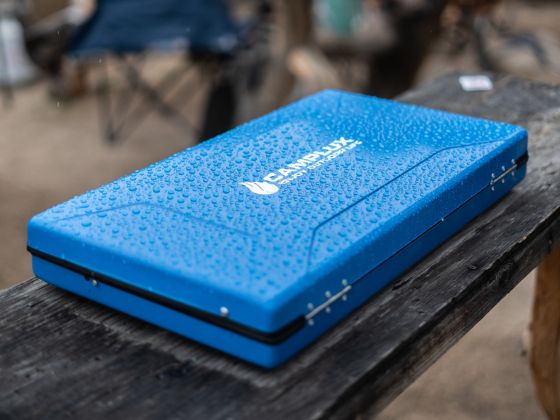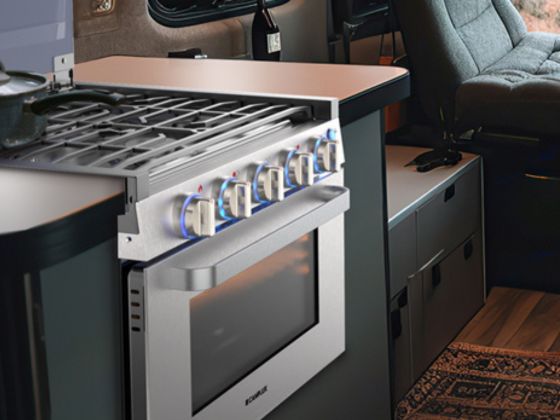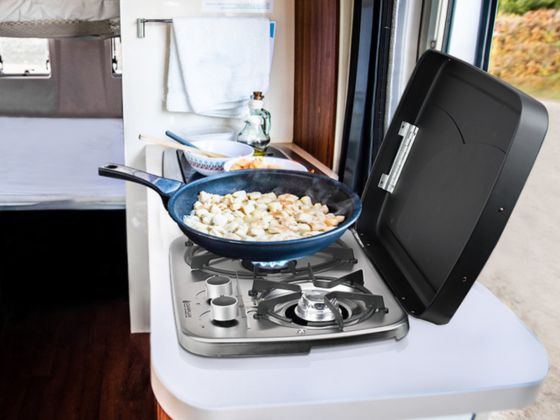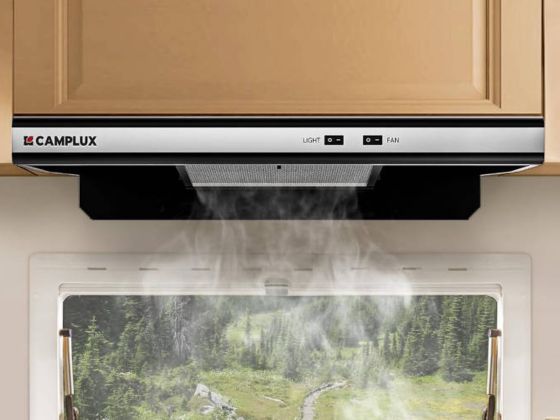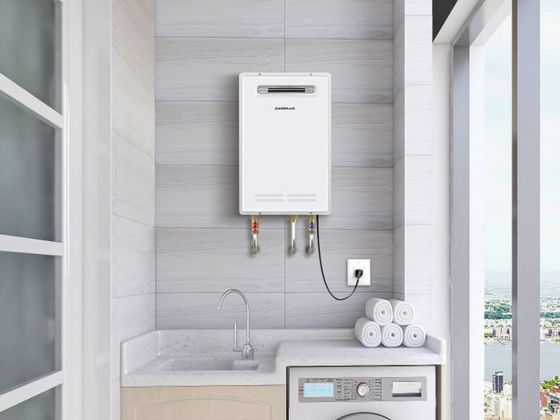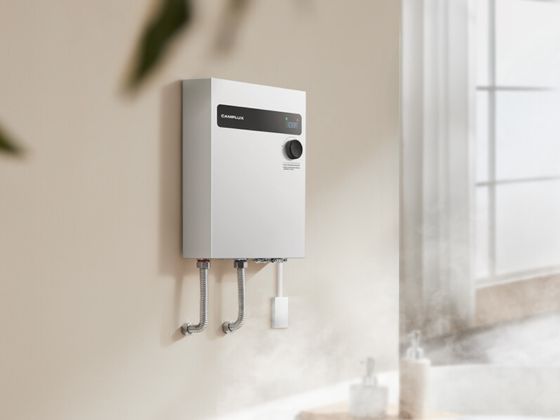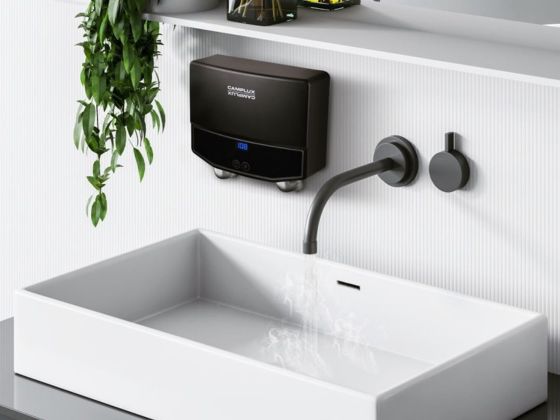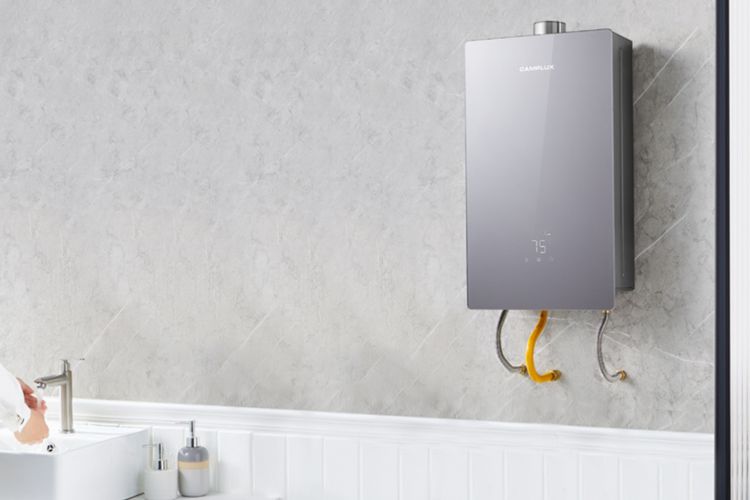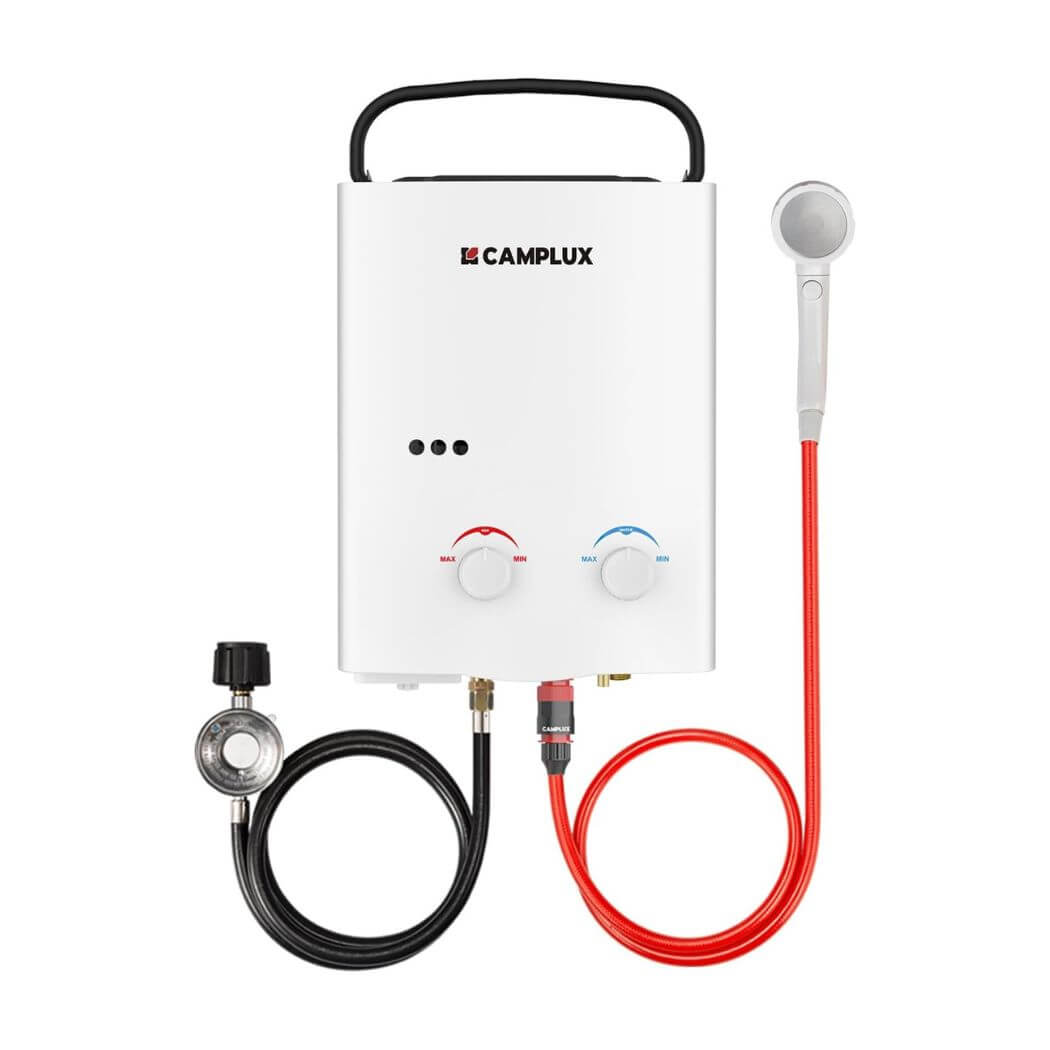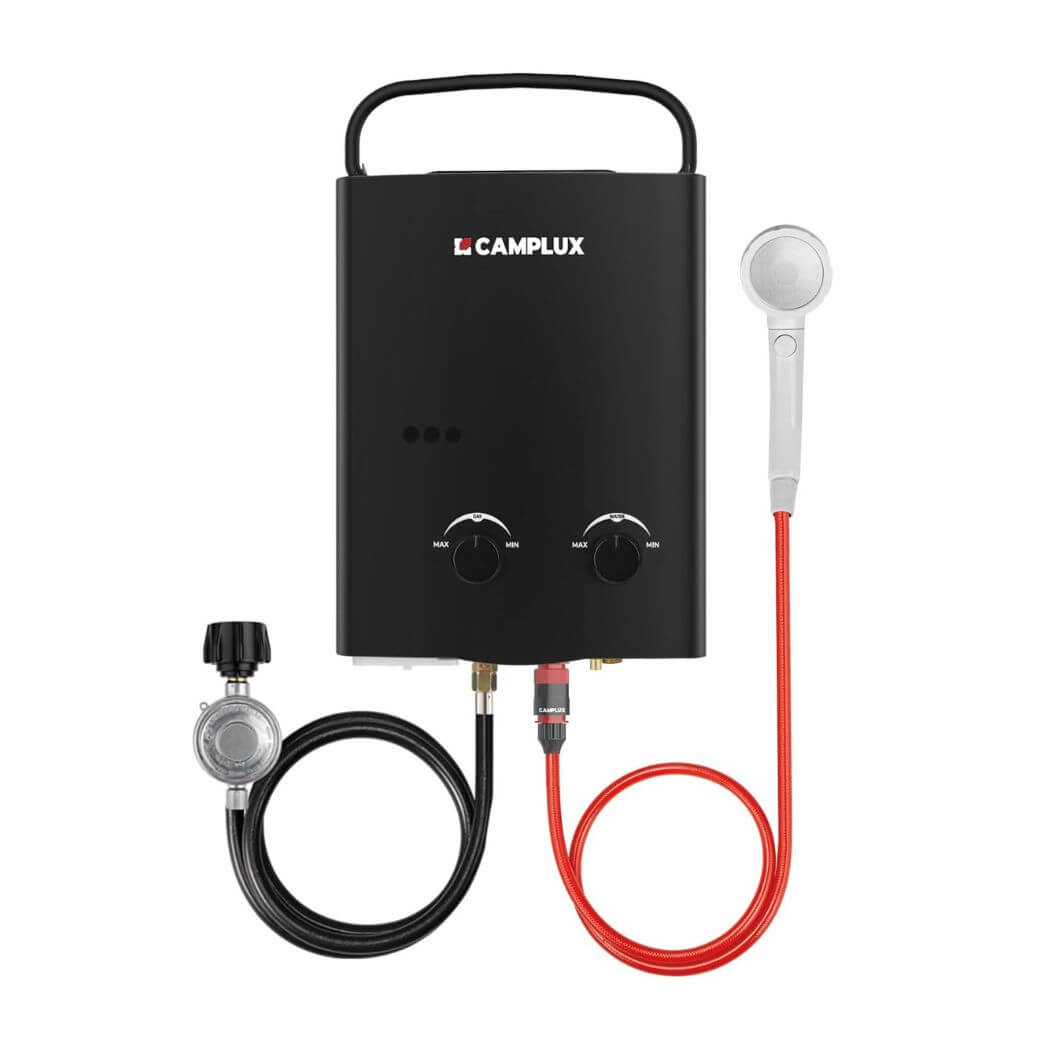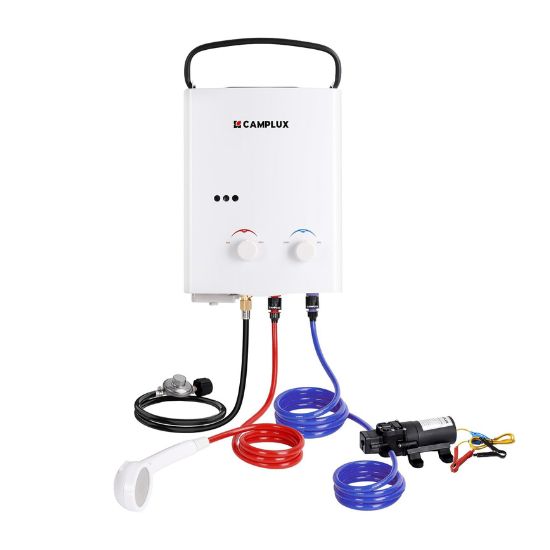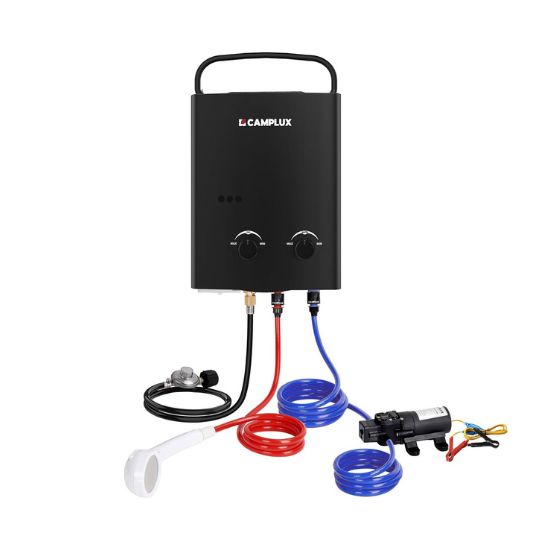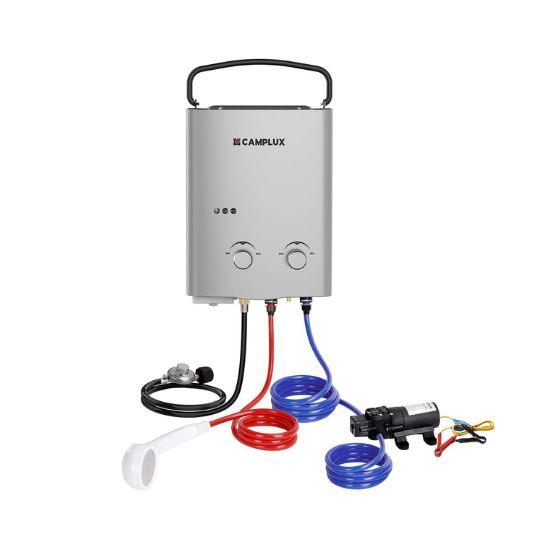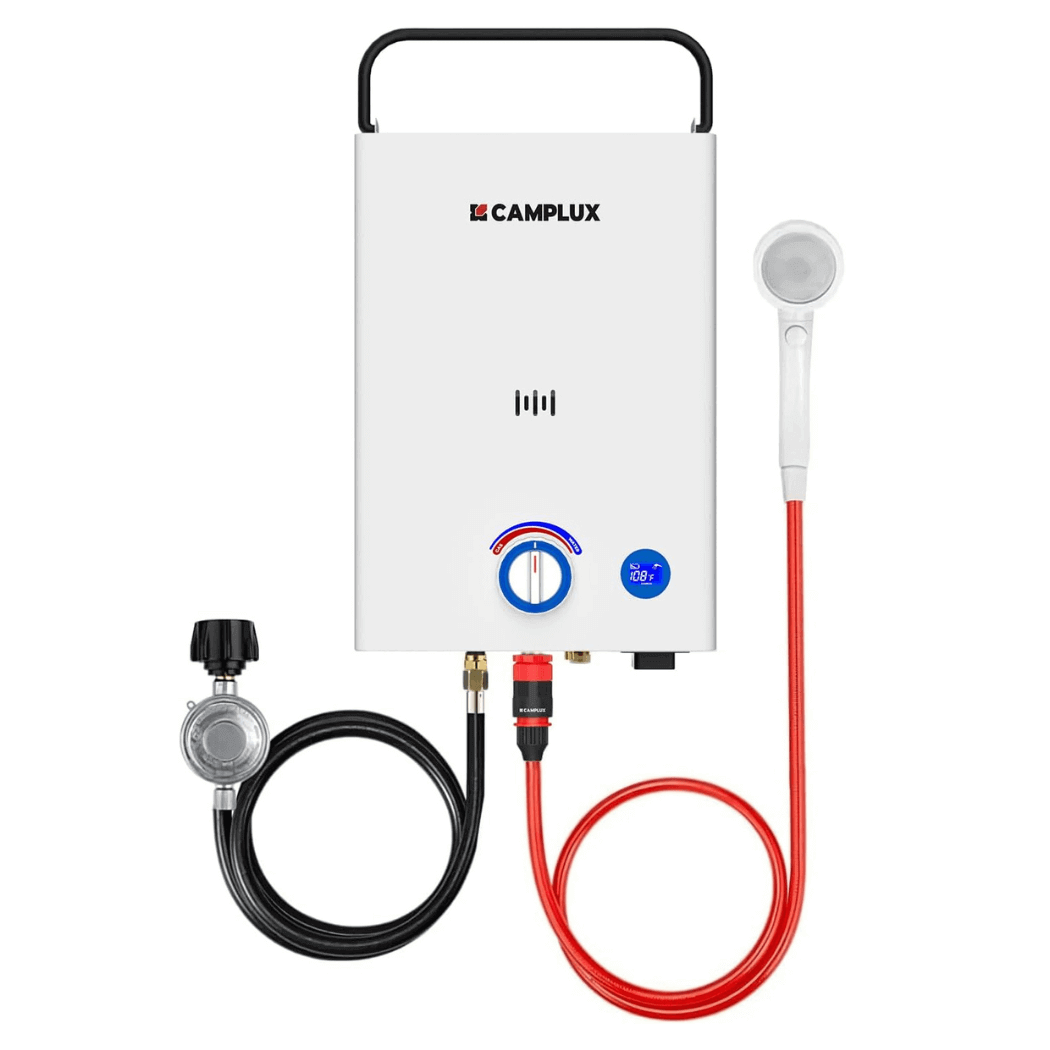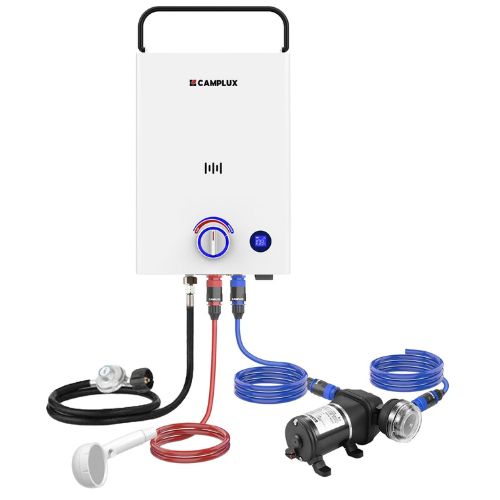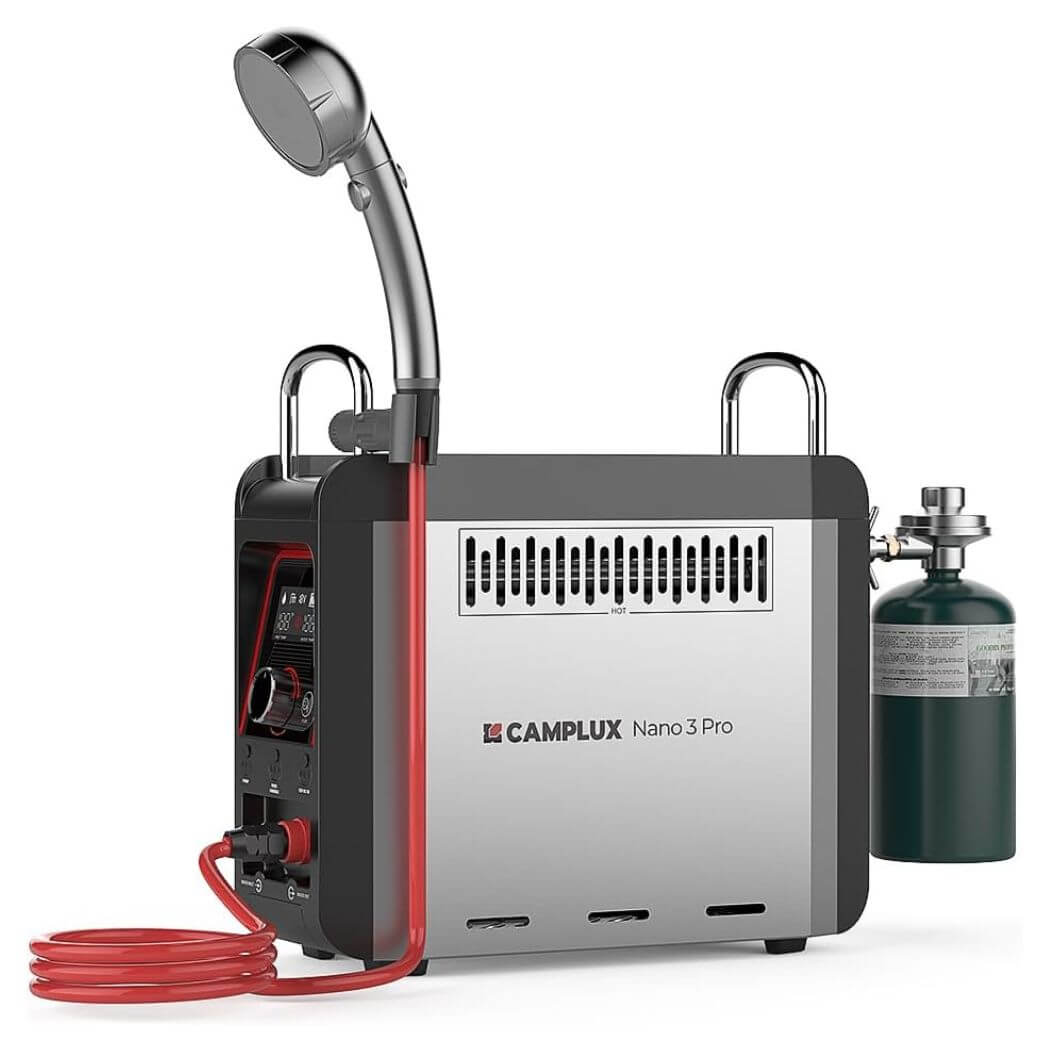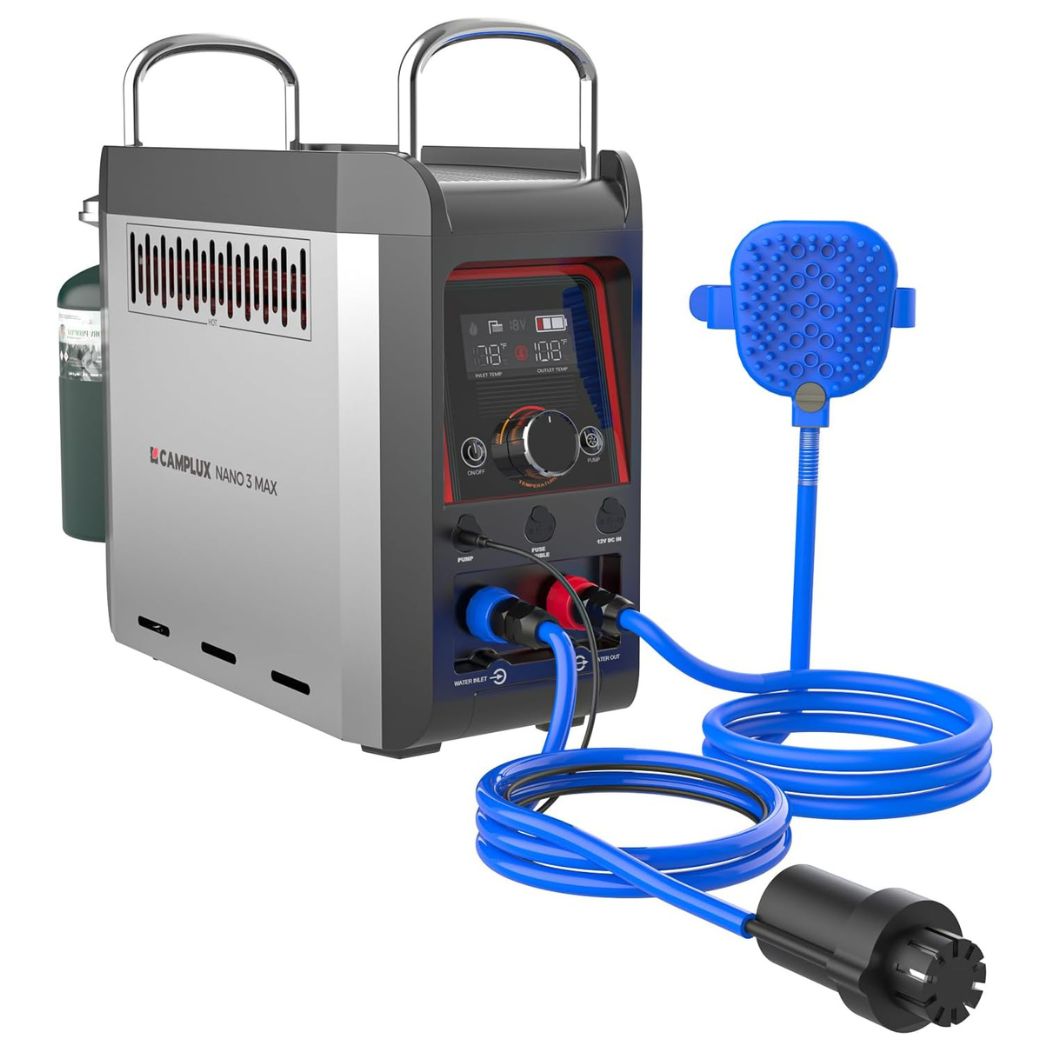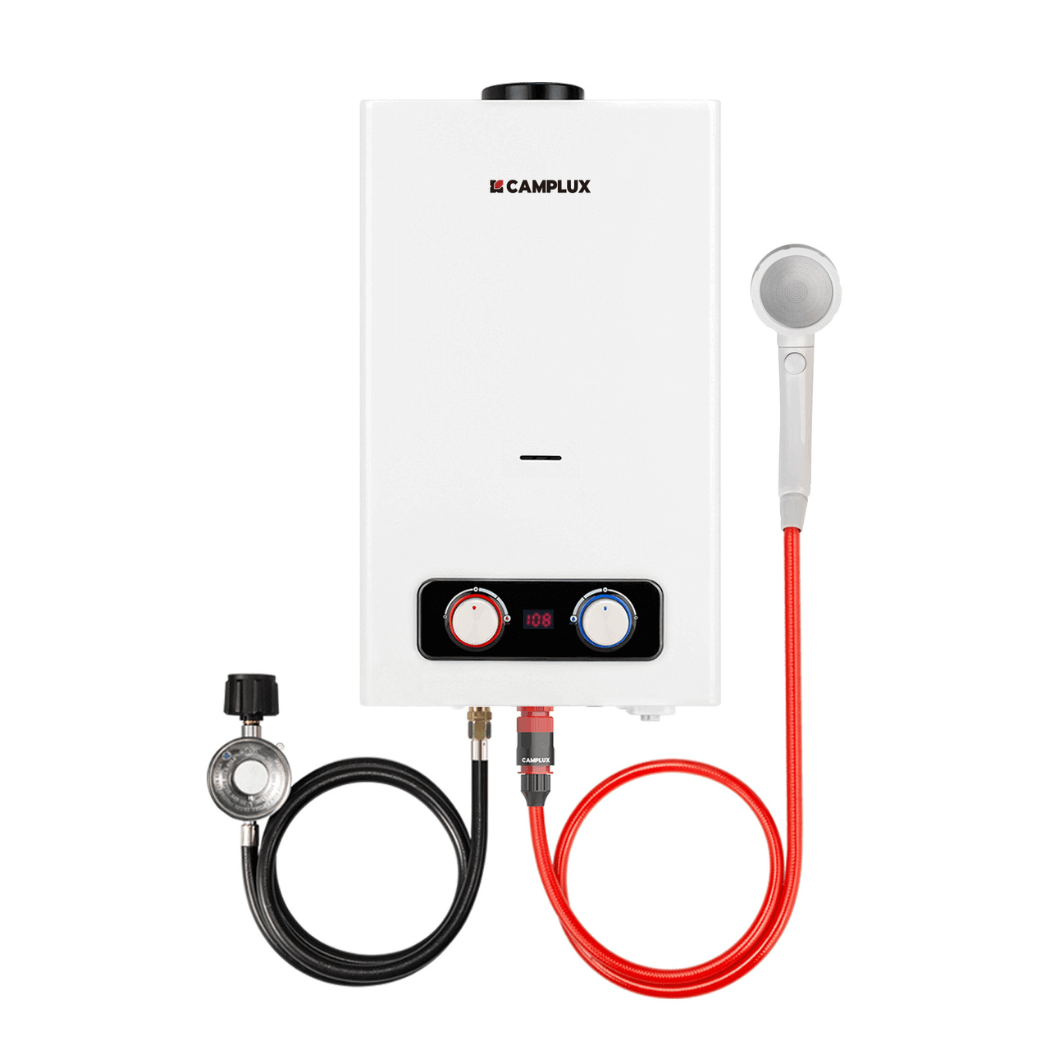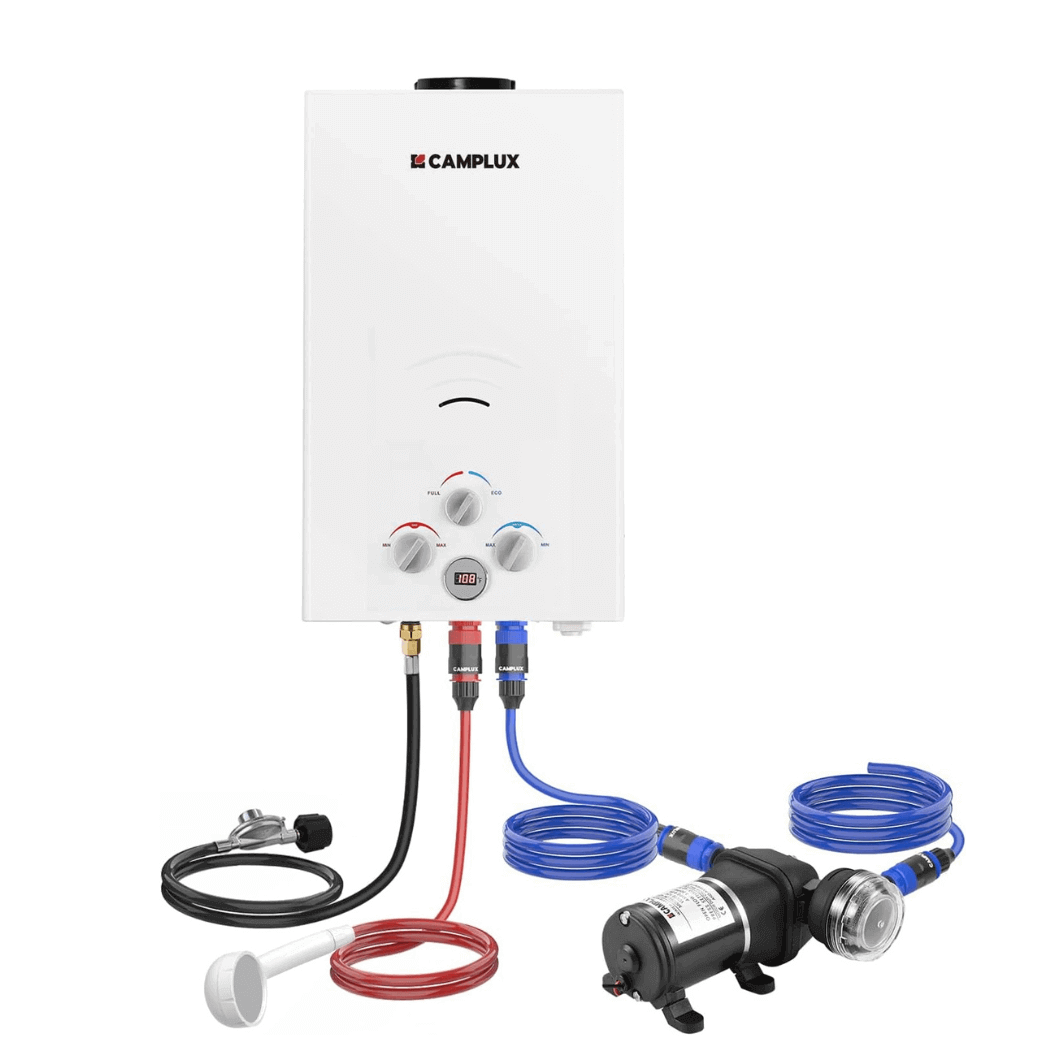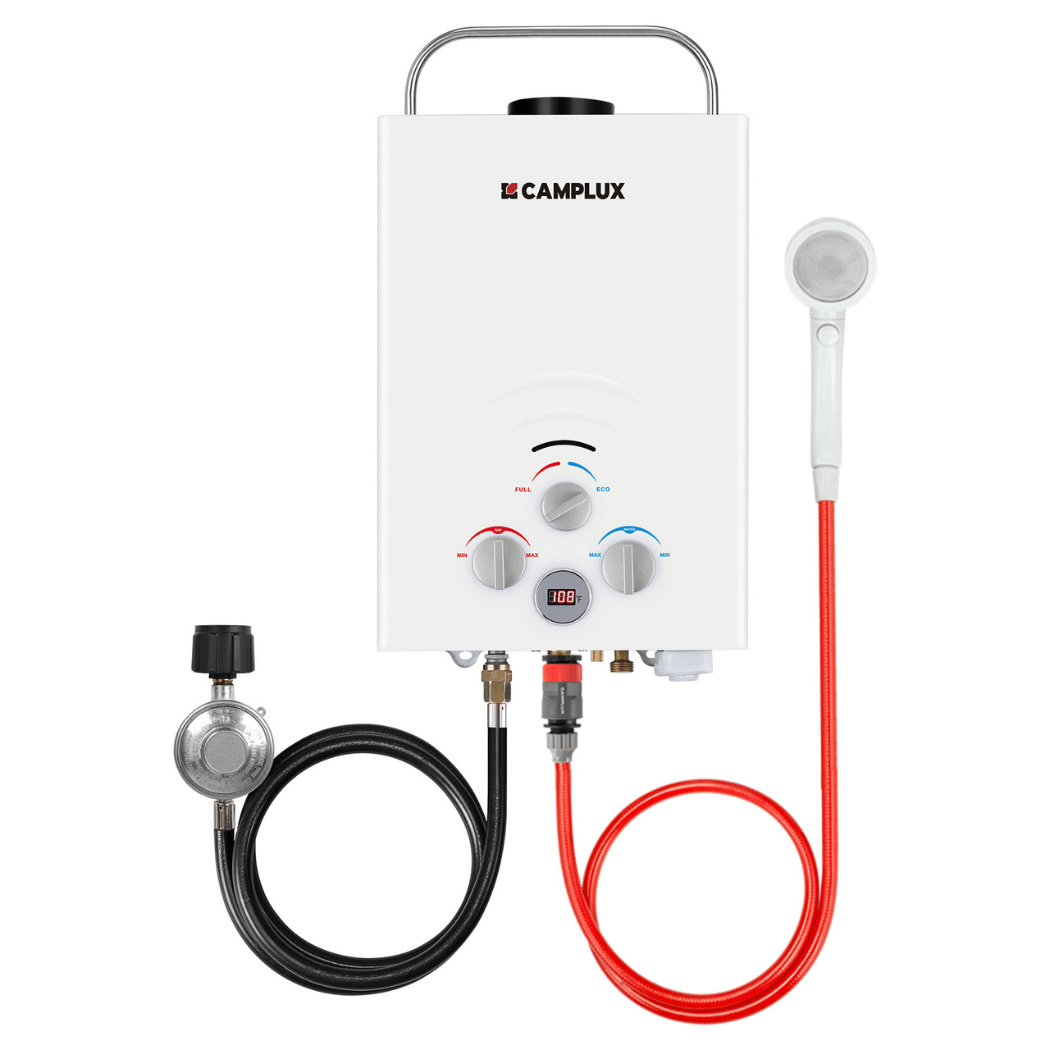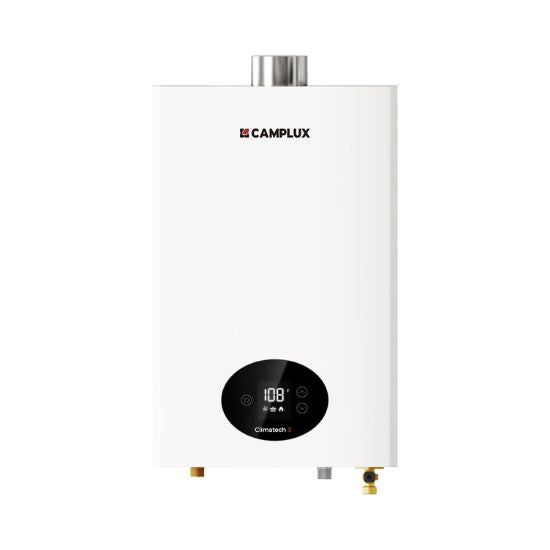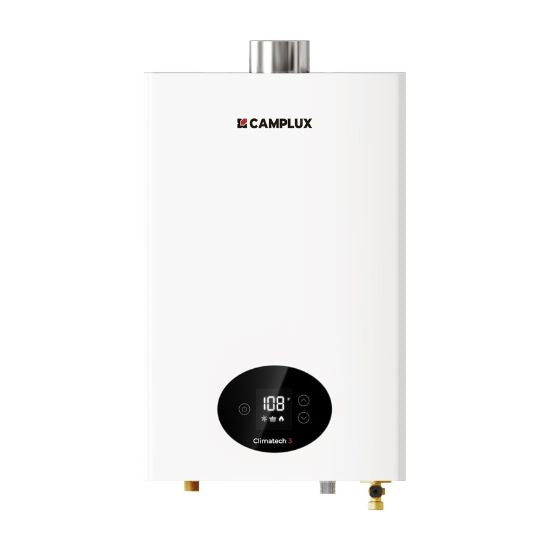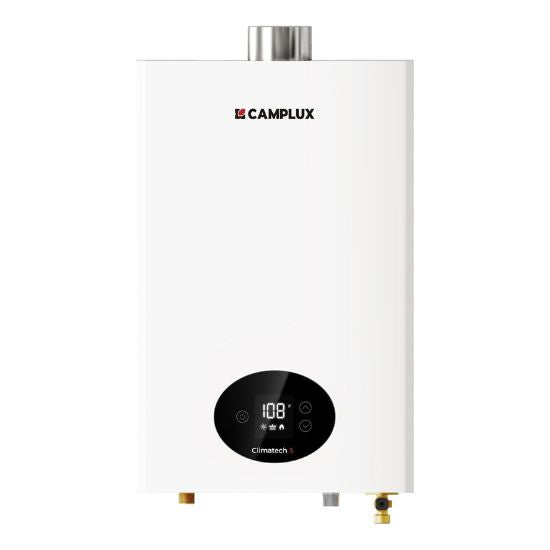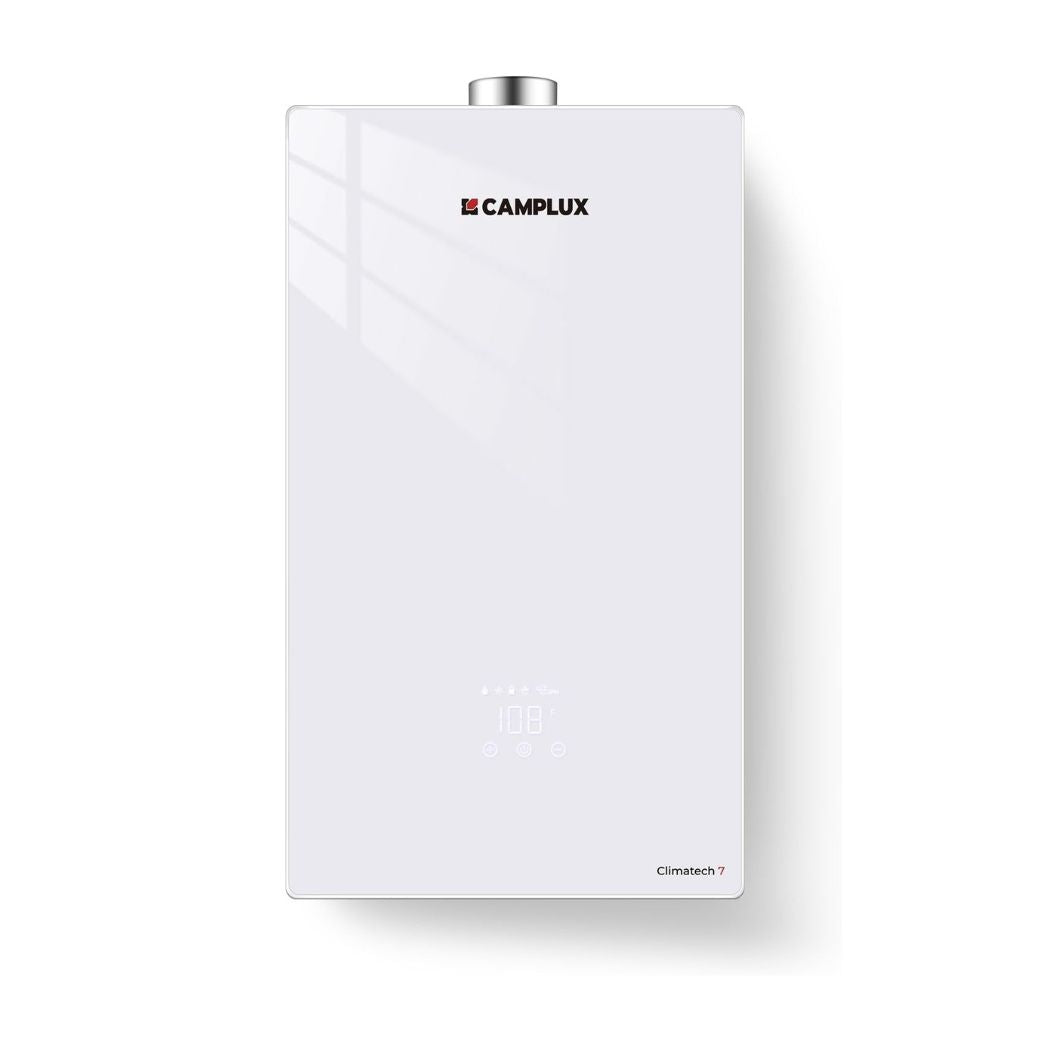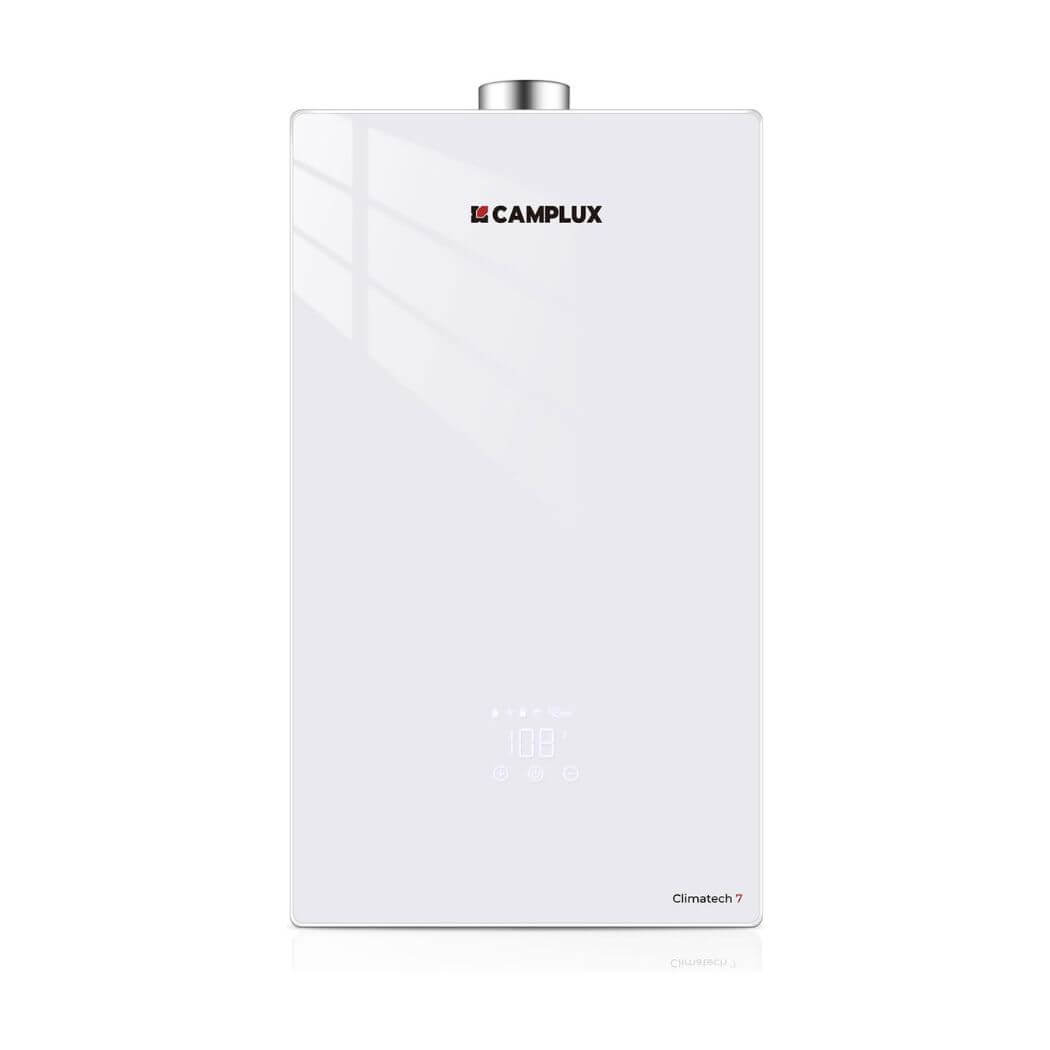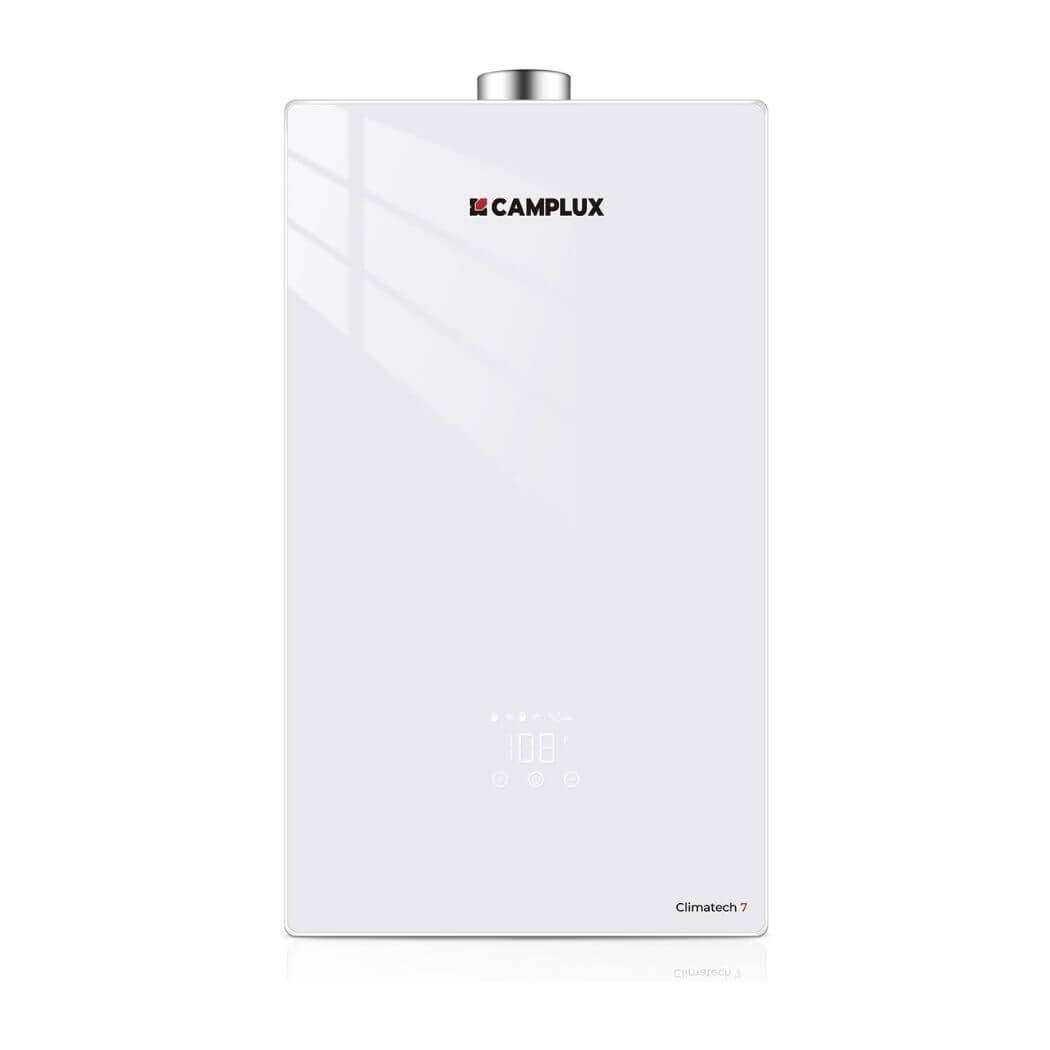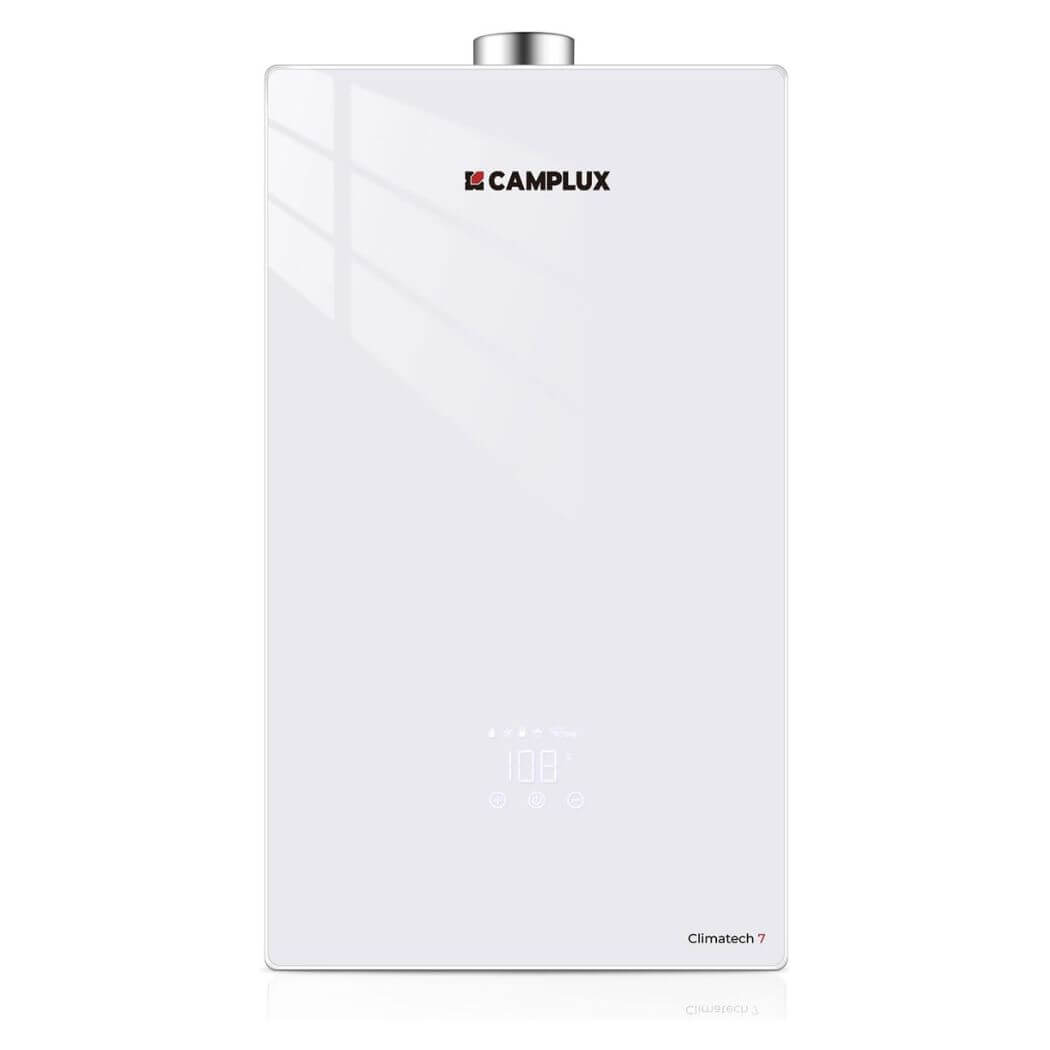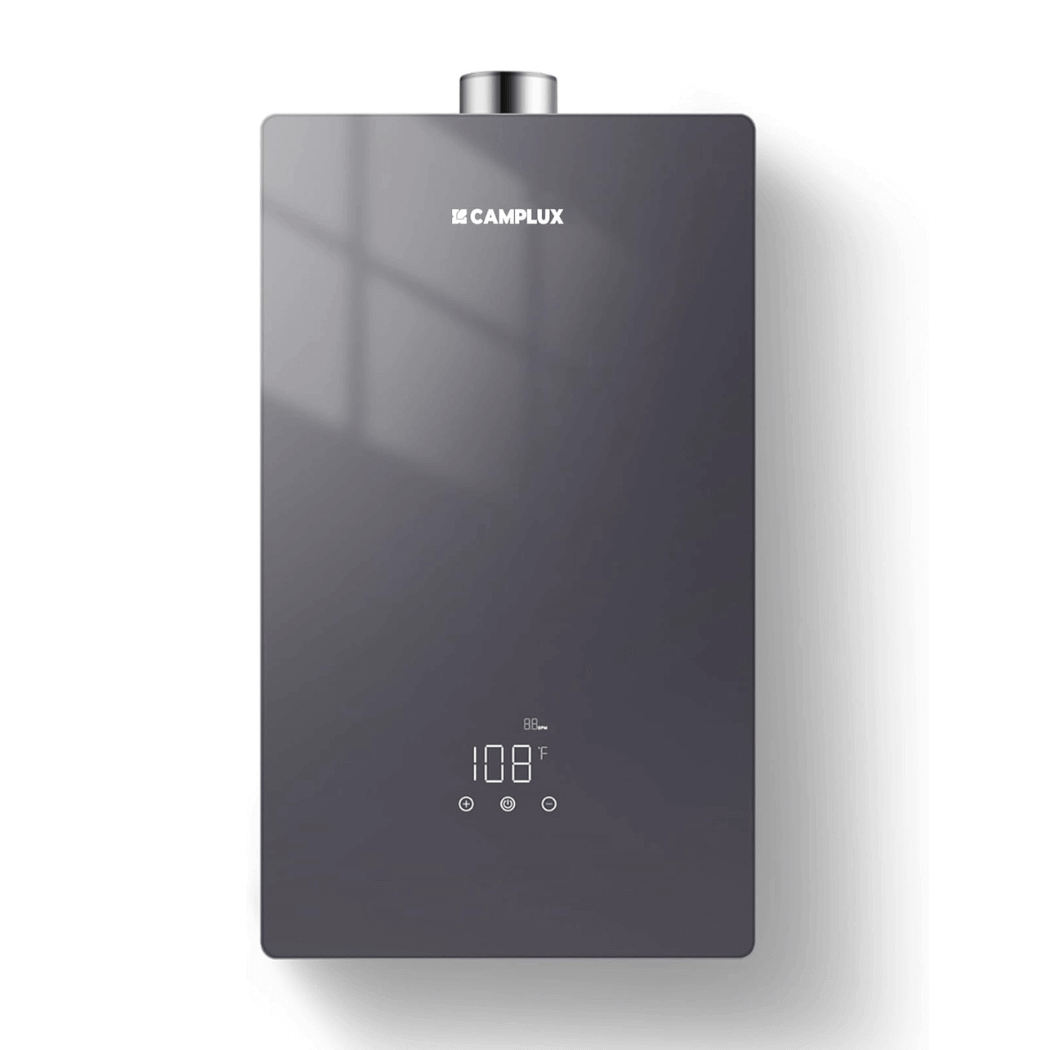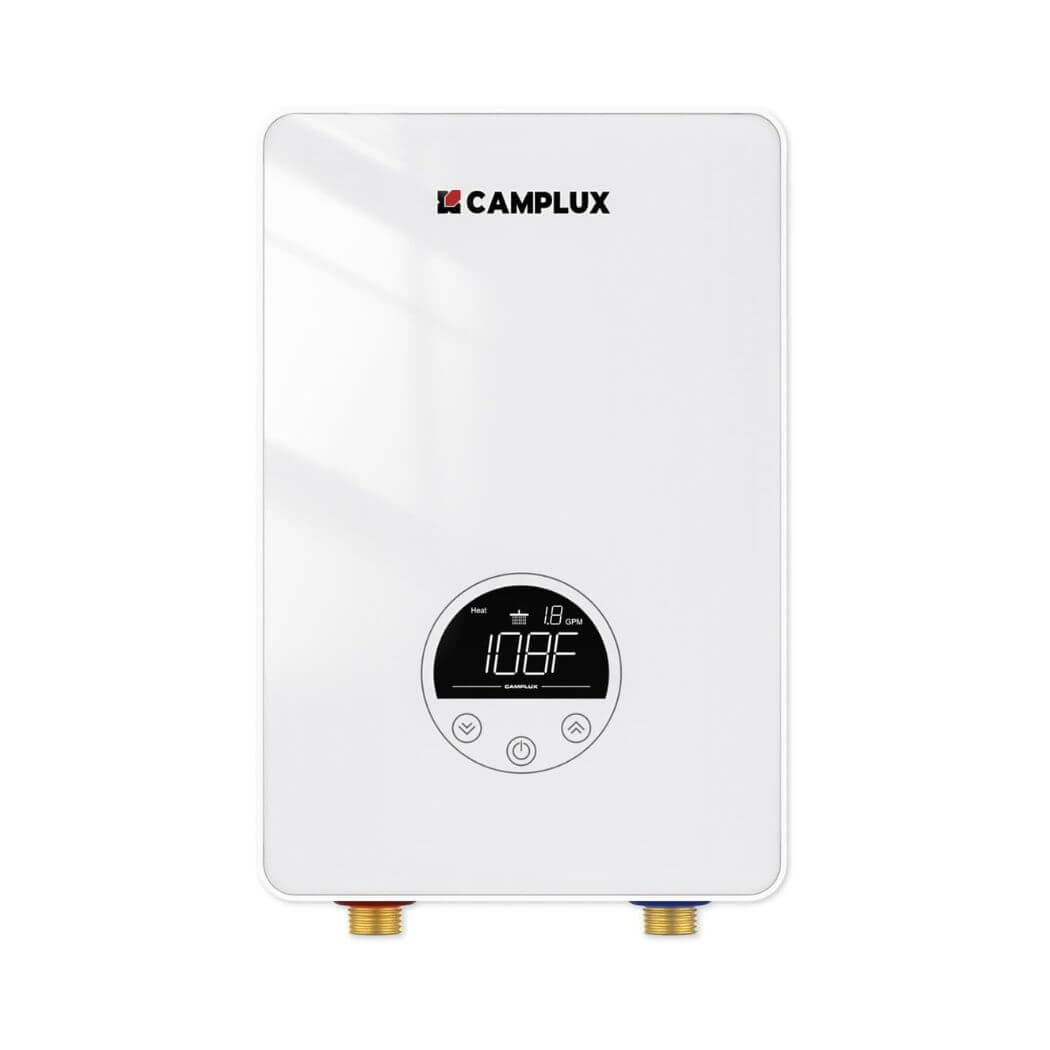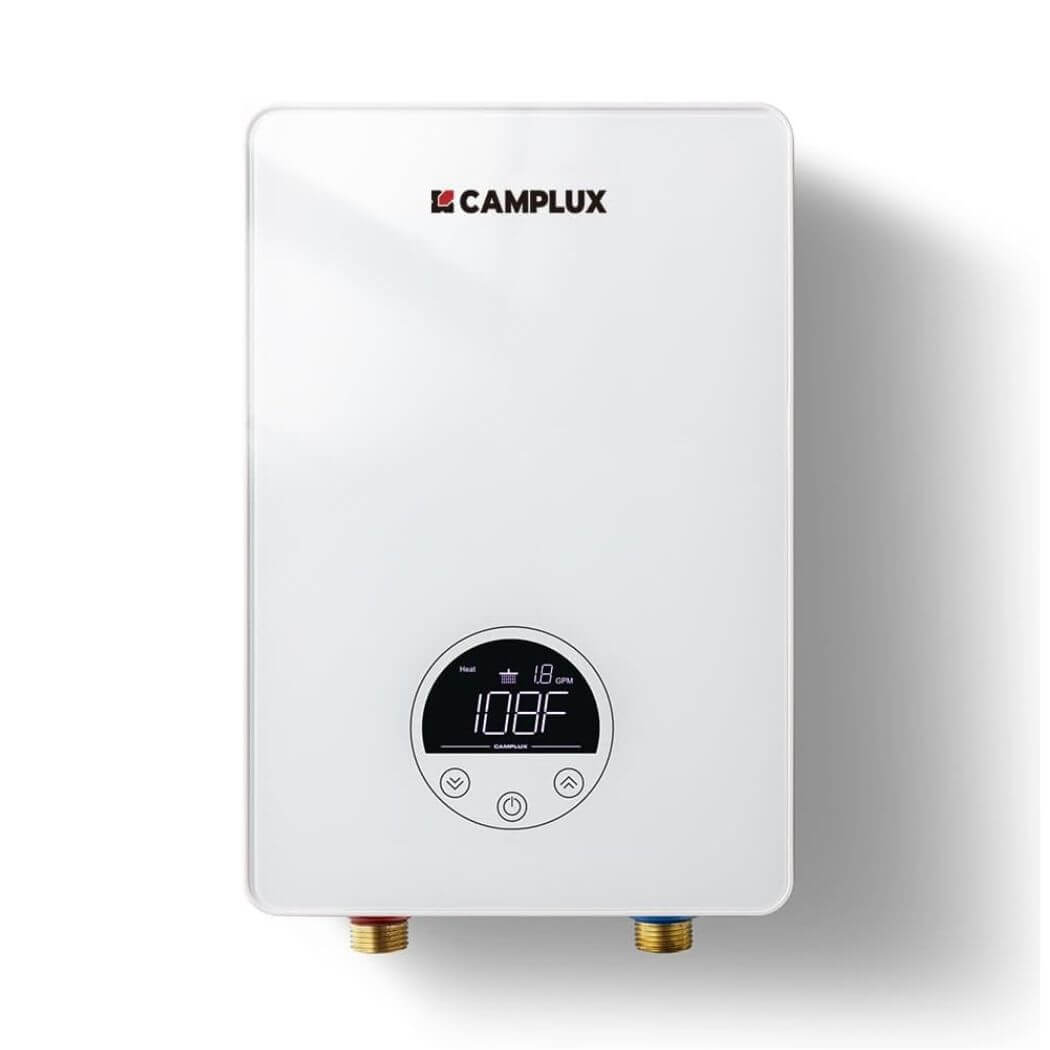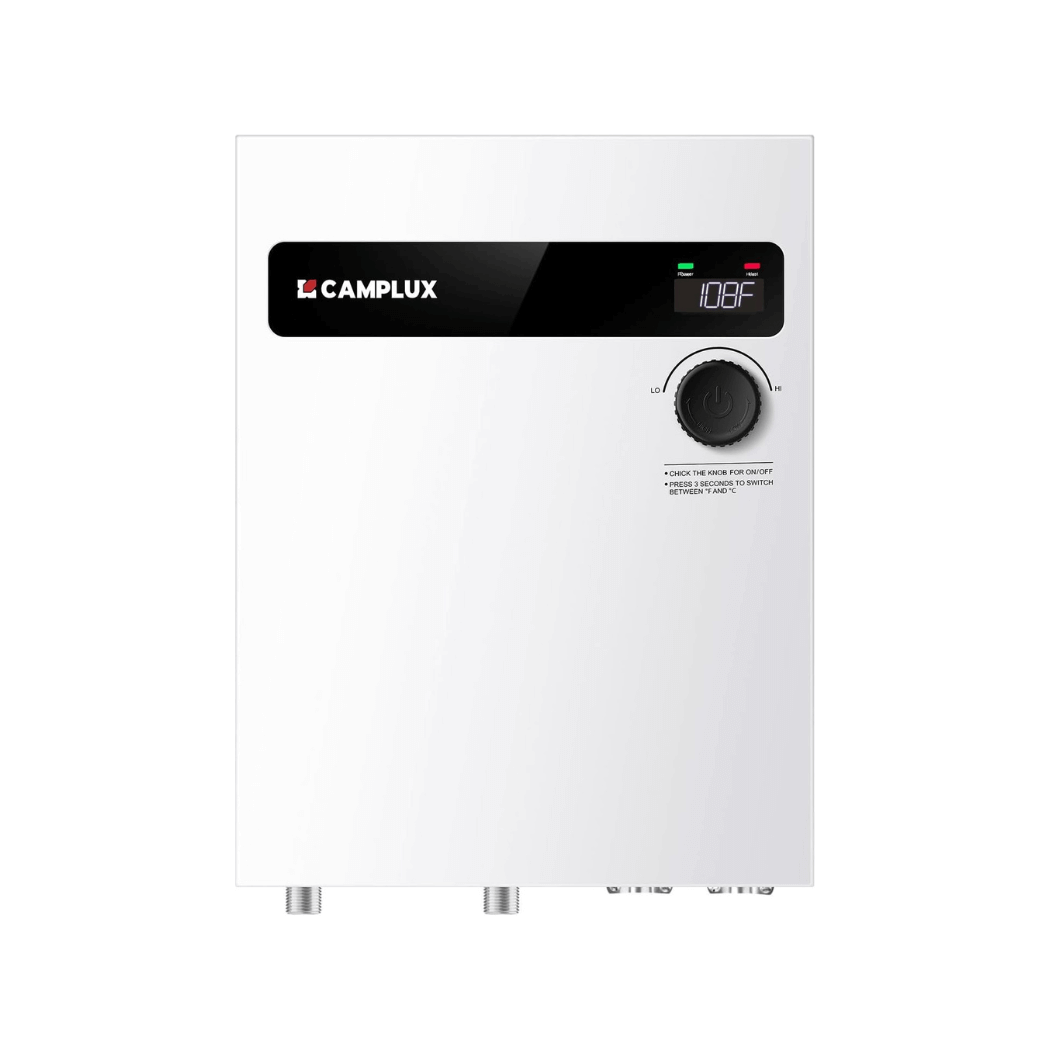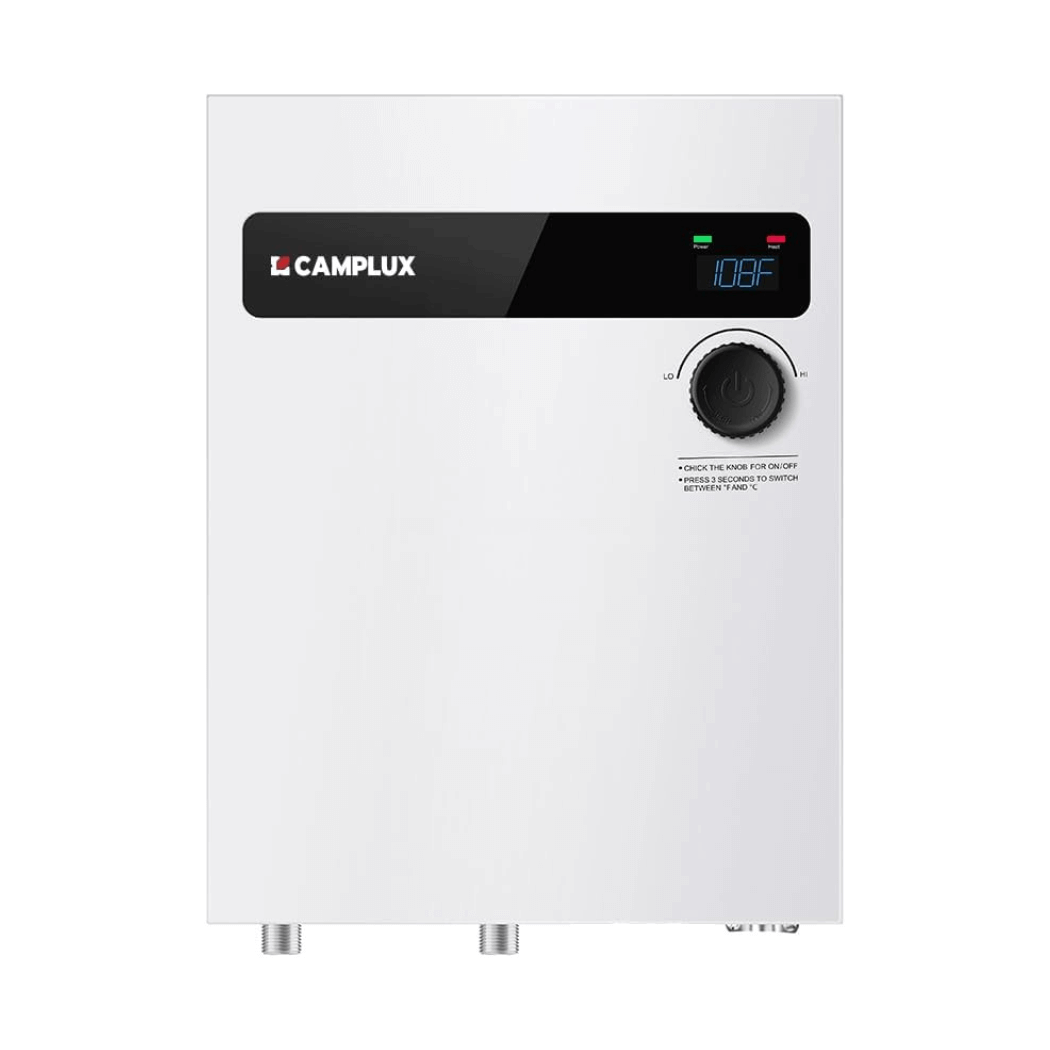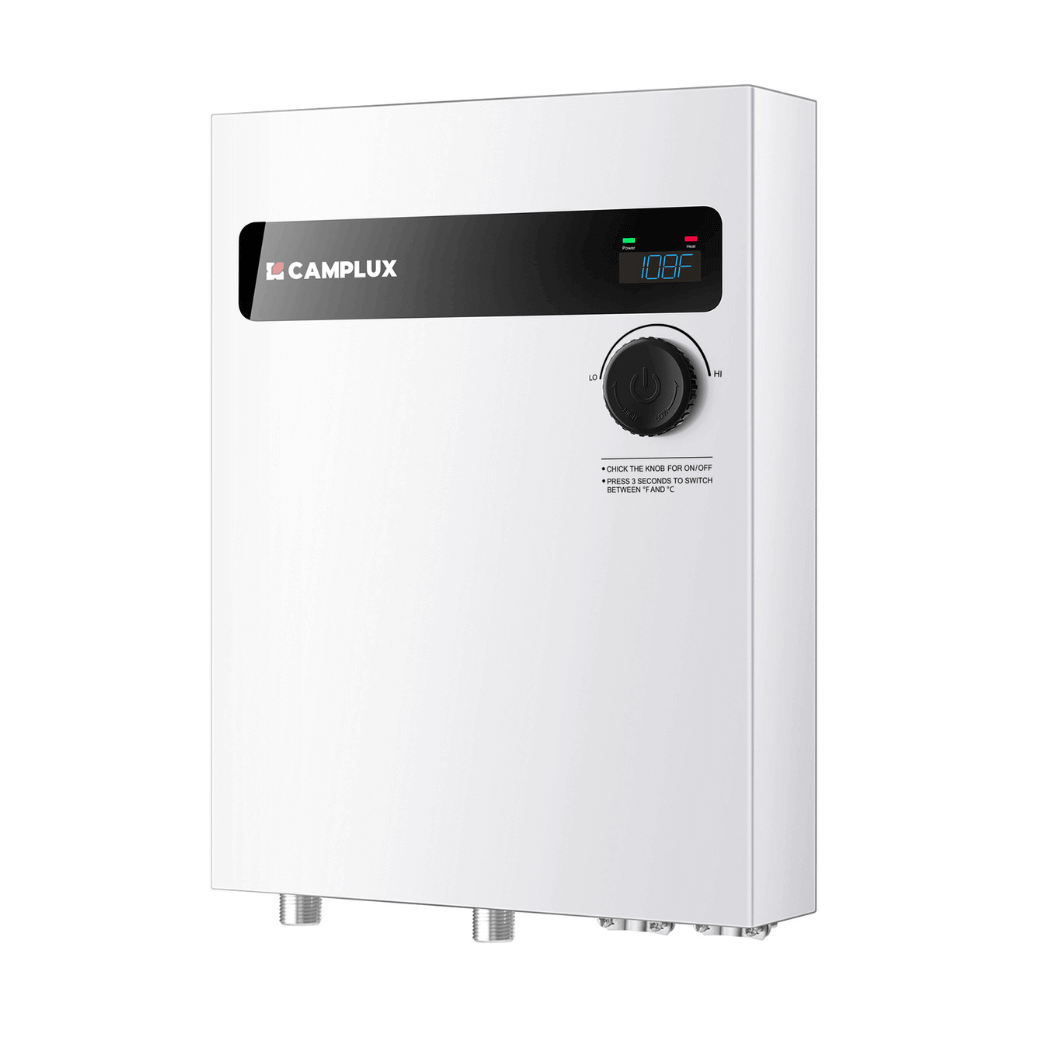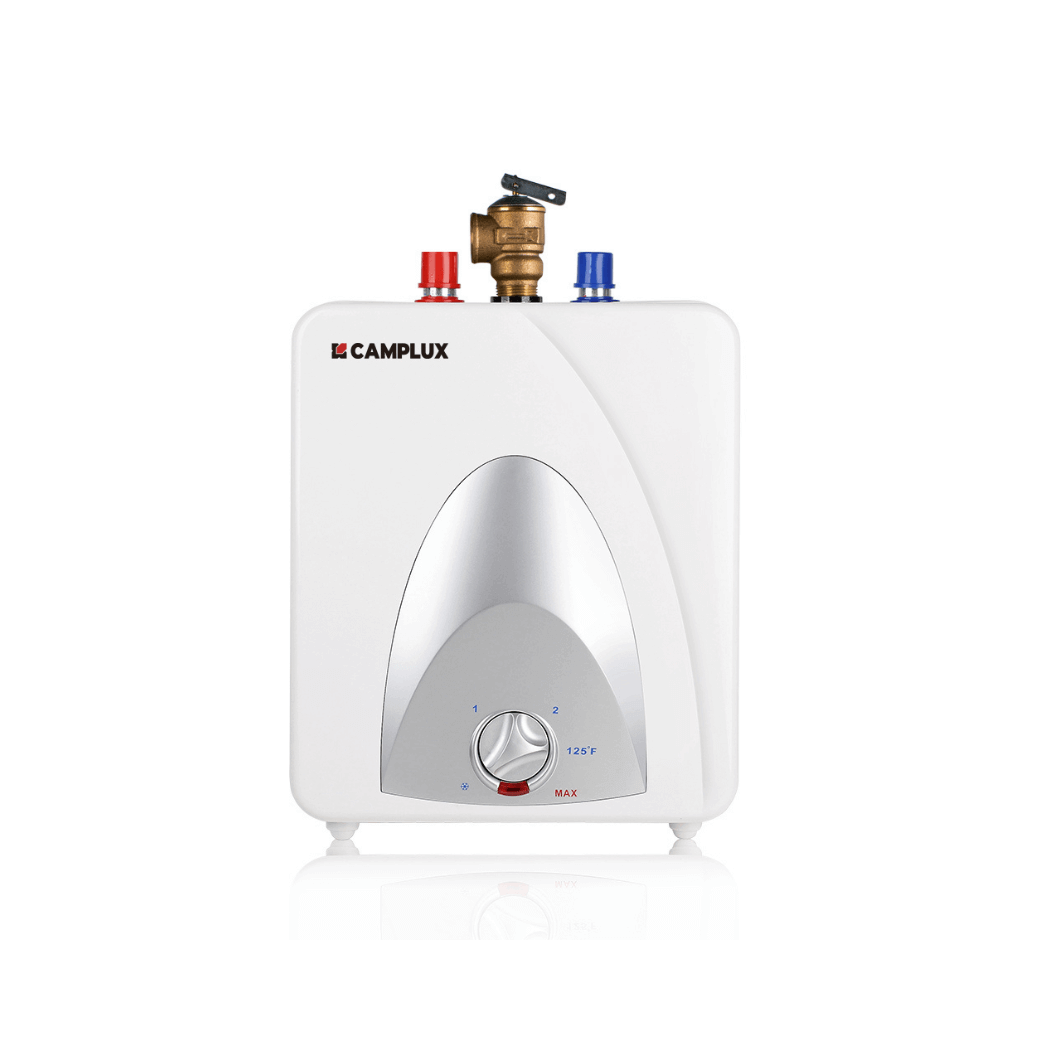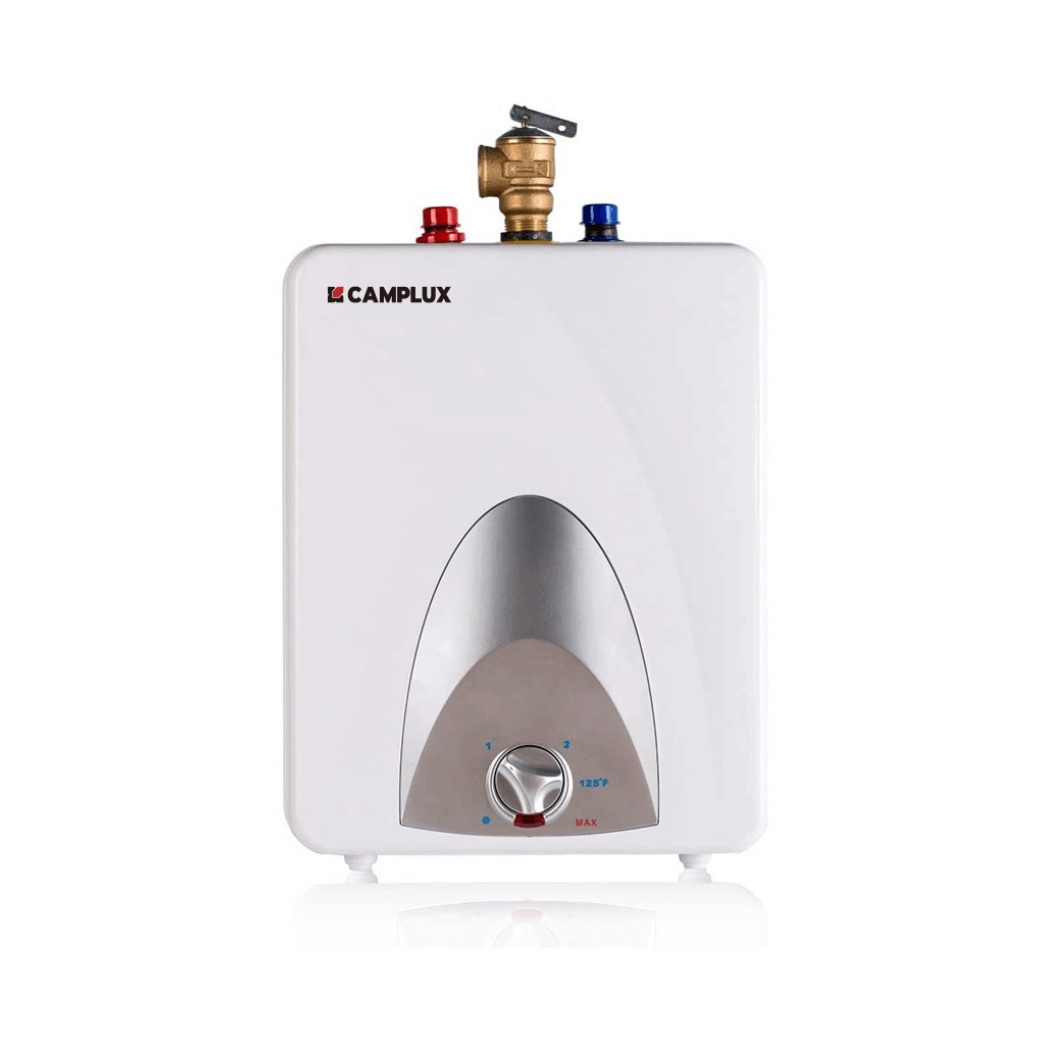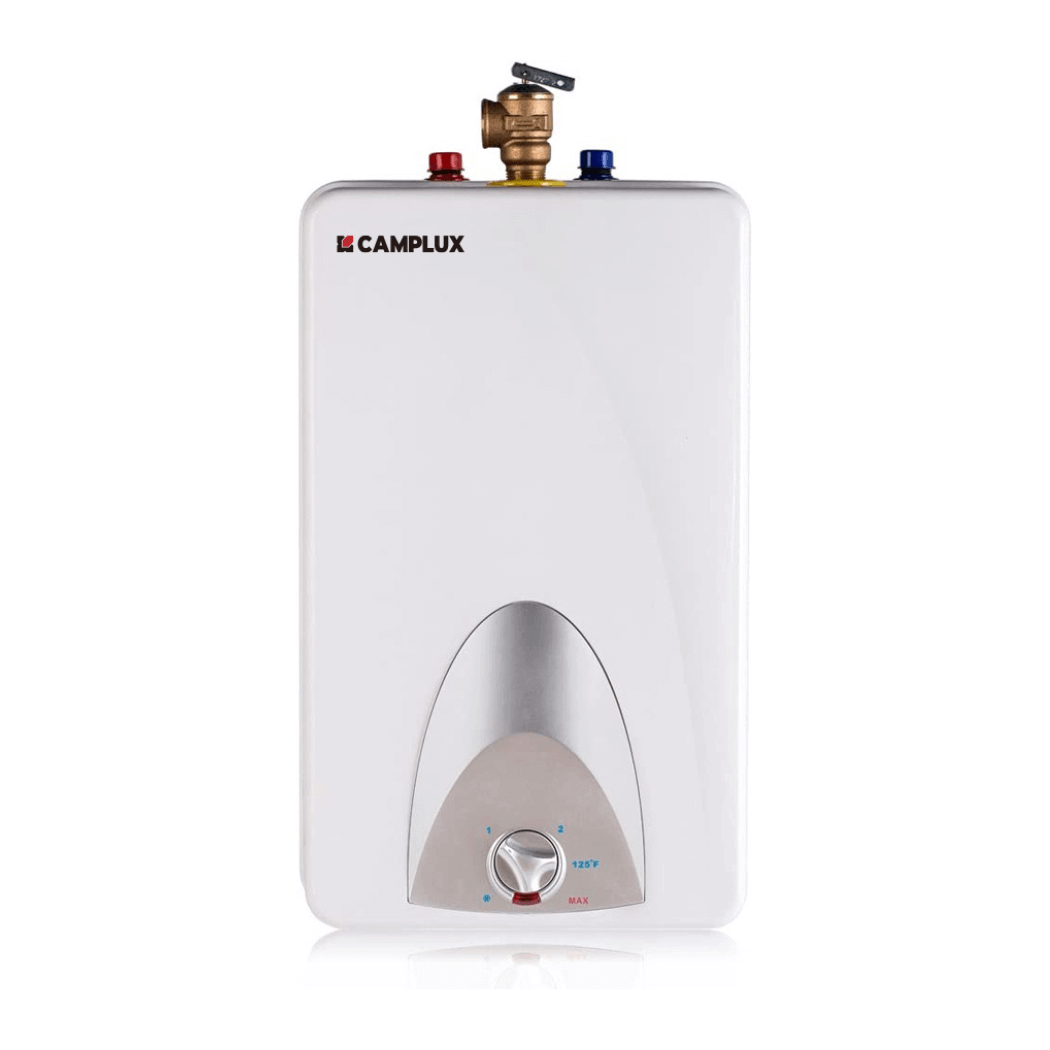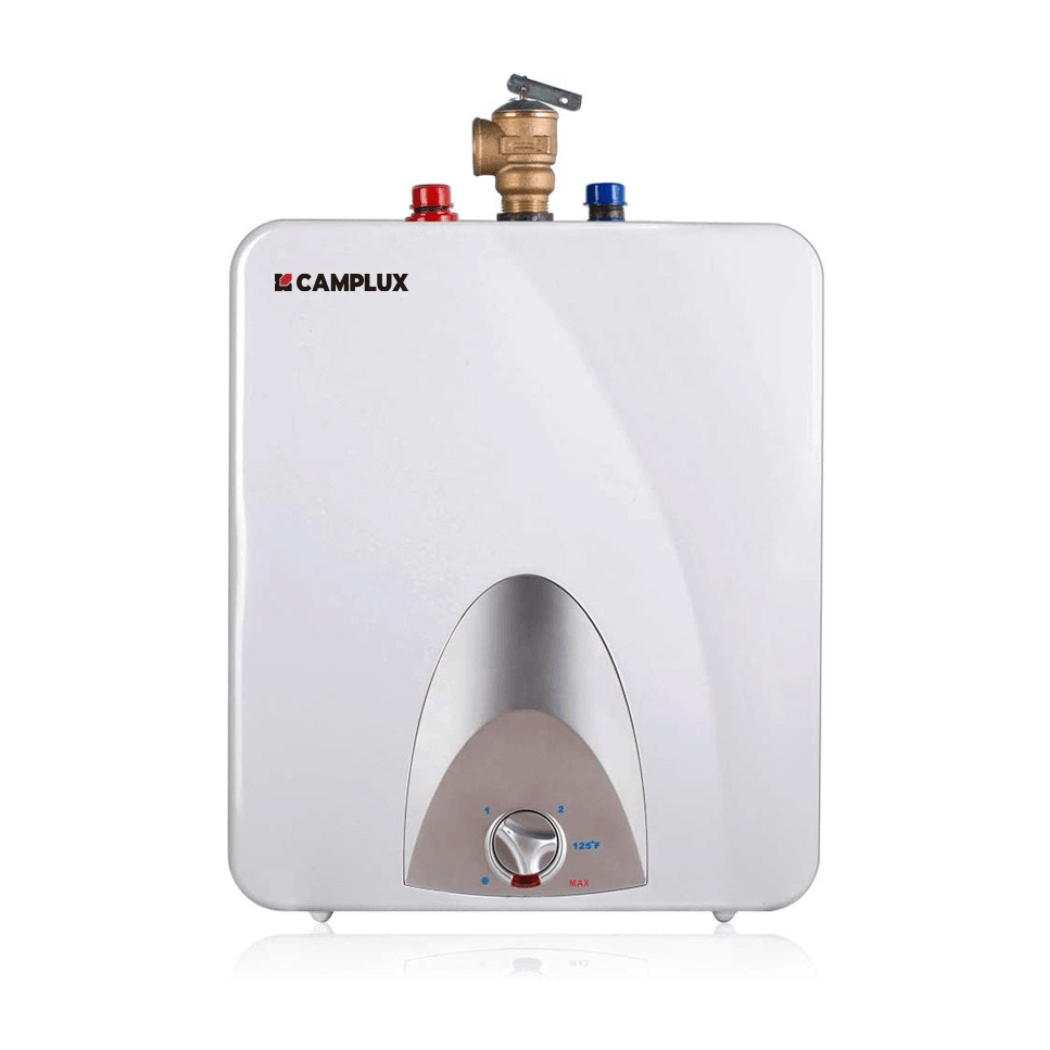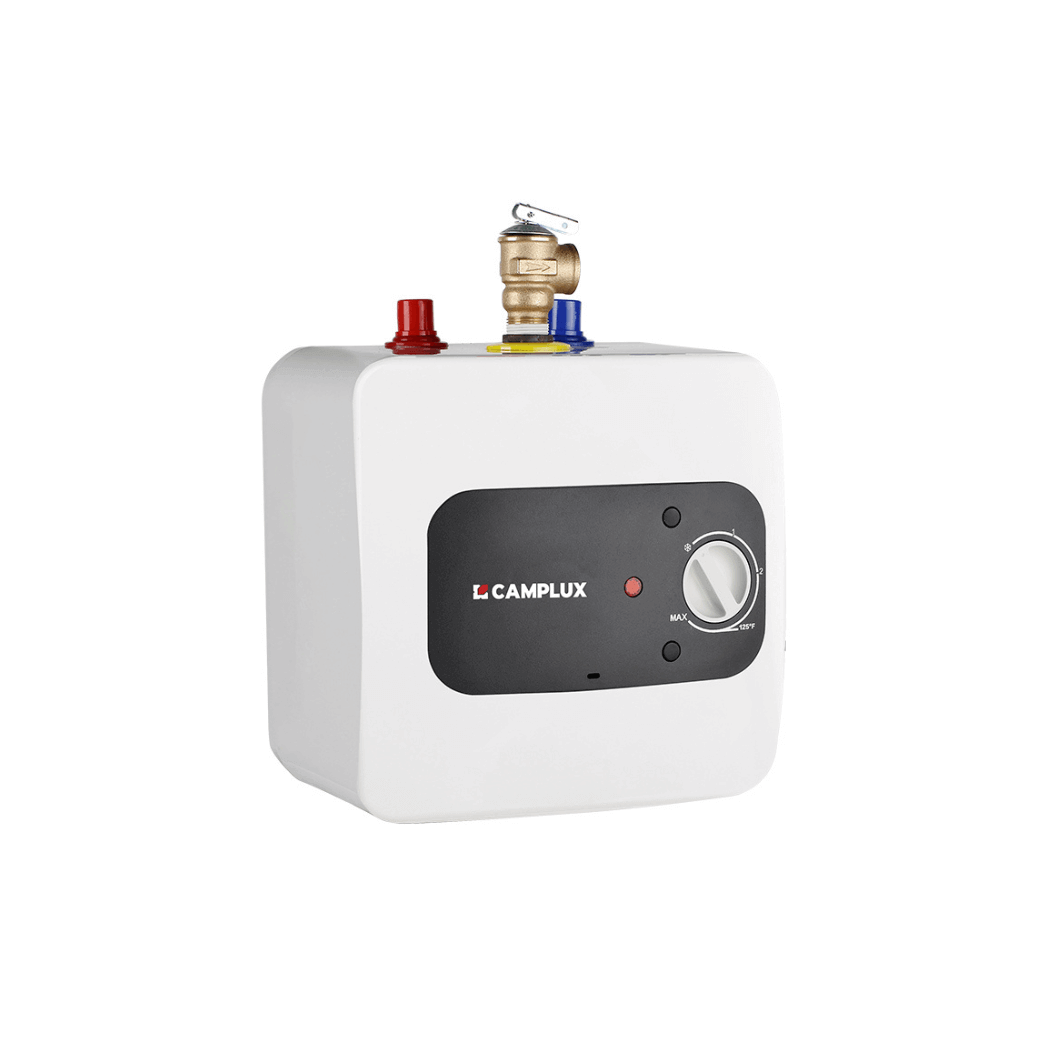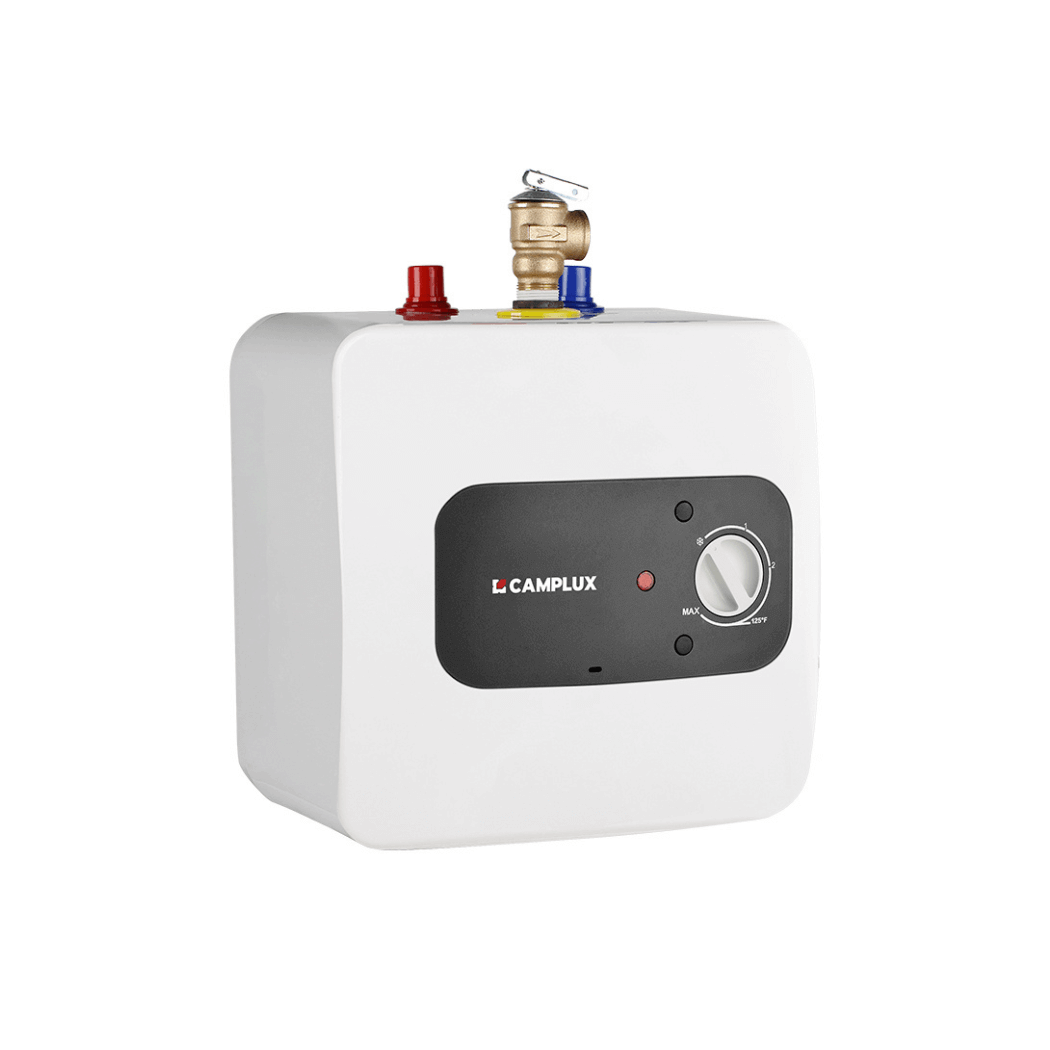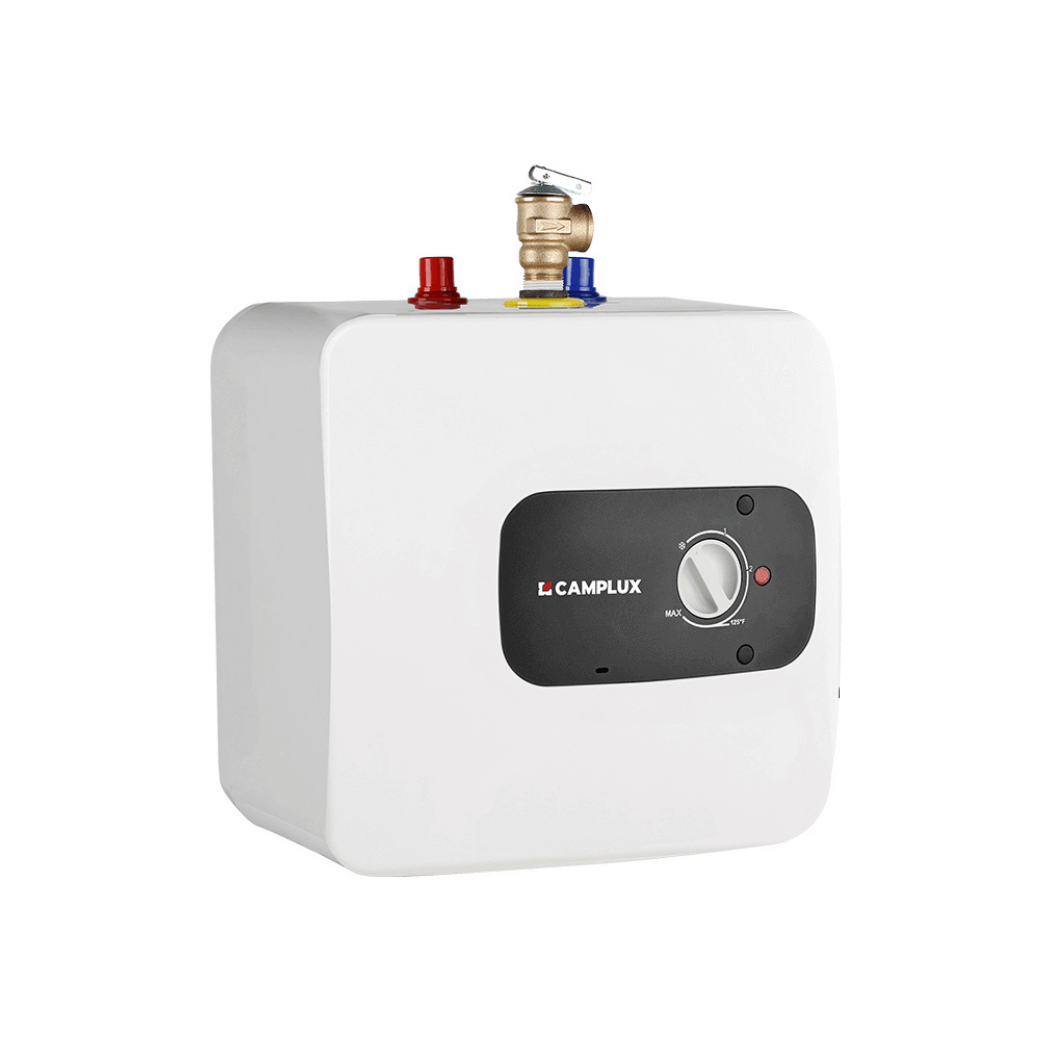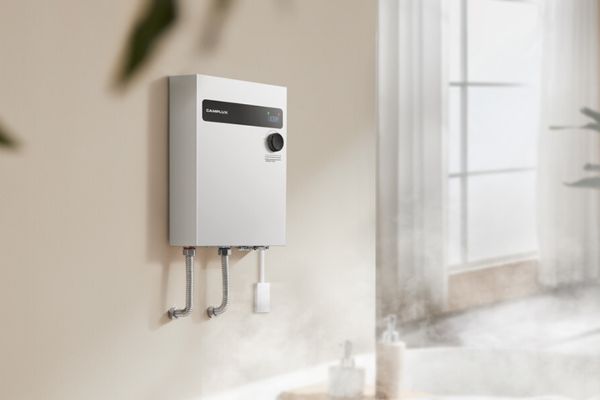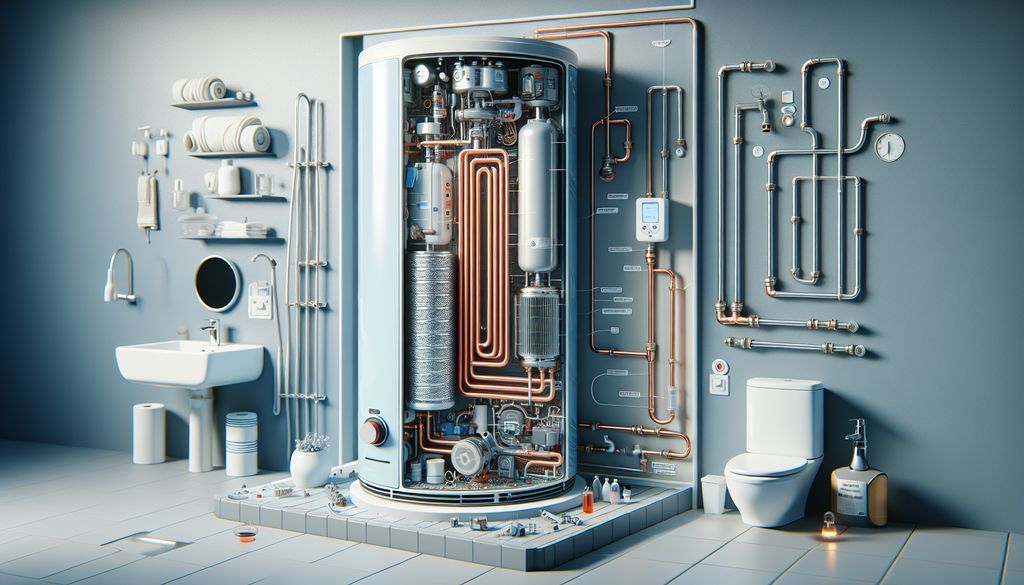Tankless water heaters offer a continuous supply of hot water and are known for their efficiency. However, like all appliances, they require regular maintenance to perform optimally. Scale buildup is a common issue that can affect the heater's efficiency and lifespan. This article provides a comprehensive guide on how to remove scale buildup from your tankless water heater, ensuring it runs smoothly and efficiently.
Key Takeaways
- Regular descaling of tankless water heaters is crucial to prevent efficiency loss and extend the appliance's lifespan.
- Identifying scale buildup and sediment accumulation is key to maintaining water heater performance and water pressure.
- Using service valves correctly during maintenance can help facilitate the descaling process and ensure safety.
- A step-by-step guide to descaling includes safety precautions, necessary tools and materials, and a detailed walkthrough.
- Preventive measures, proper gas maintenance, and winterization are essential for optimizing tankless water heater efficiency.
Understanding Tankless Water Heater Maintenance

The Importance of Regular Descale Procedures
Regular maintenance, including descaling, is crucial for the longevity and efficiency of tankless water heaters. Regular descaling helps prevent clogs, reduced water flow, and decreased efficiency. In areas with hard water, scale buildup can have a significant impact on the heater's performance. Descaling not only extends the lifespan of the unit but also ensures that you consistently enjoy the benefits of hot water on demand.
By implementing a routine descaling procedure, homeowners can avoid the gradual decrease in water heater performance and prevent the need for costly repairs or replacements.
It's recommended to conduct descaling procedures annually, especially if you live in an area with hard water. This simple step can save you from unexpected disruptions and maintain optimal water pressure throughout your home.
Identifying Common Issues: Scale Buildup and Sediment Accumulation
Scale buildup and sediment accumulation are common issues that can significantly affect the performance of your tankless water heater. Sediment buildup may consist of dirt, minerals, or rust particles, particularly prevalent in systems with iron components. These sediments can lead to blockages, disrupting water supply and pressure.
Descaling is a crucial process to remove these mineral deposits, such as calcium or magnesium scale, and restore your system's ability to heat water efficiently. While a tankless water heater descaler is designed for this purpose, household items like vinegar can also be effective, albeit potentially less so.
The patented dual-action sediment removal technology exemplifies an advanced approach to tackling tough calcium deposits and lime scale. This method ensures smooth operation and prolongs the lifespan of your water heater.
It's important to recognize the signs of sediment in your water heater. If you're experiencing insufficient hot water, it could be a symptom of sediment buildup. Quick troubleshooting can often reveal the cause and determine whether descaling is necessary.
The Role of Service Valves in Maintenance
Service valves are integral to the maintenance of a tankless water heater. They facilitate the isolation of the unit from the water supply, allowing for safe and efficient descaling and repairs. Regular maintenance , including the use of service valves, is essential to prevent water pressure issues and ensure optimal performance.
Quality service valves, such as those designed for tankless water heaters, are specialized to handle the demands of regulating water flow and temperature. They direct water through the system when needed, which is crucial for the heater's longevity and efficiency.
When performing maintenance, it is important to check the service valves for any signs of wear or damage. Proper functioning of these valves is critical for the system's reliability.
Here are some steps to consider during maintenance involving service valves:
- Inspect service valves for corrosion or damage.
- Test the valves to ensure they are operating correctly.
- Replace any valves that show signs of malfunction.
- Use only lead-free service valve sets designed for tankless systems.
Step-by-Step Guide to Descaling Your Tankless Water Heater

Safety Precautions Before Starting
Before embarking on the descaling process for your tankless water heater, it is imperative to prioritize your safety. Ensure that both the power and water supply to the unit are turned off to prevent any accidents. This is a critical step that cannot be overlooked.
Wear protective gear such as rubber gloves, safety glasses, and a face mask to shield yourself from any harmful chemicals or debris that may be encountered during the descaling process. Double-check that the unit is not operational by attempting to turn on the hot water faucet; no water should flow.
If at any point you feel uncertain or uncomfortable with the procedure, do not hesitate to seek professional assistance.
Remember, dealing with electrical and gas appliances requires caution. If you are not confident in performing these steps safely, it is advisable to contact a professional plumber or technician.
Tools and Materials Needed
Before beginning the descaling process, it's essential to gather all the necessary tools and materials. Ensure you have a high-quality descaling solution , such as a Tankless Water Heater Descaler Kit , which includes a 32 fl oz solution designed to effectively remove scale deposits. This not only improves the efficiency of your heater but also extends its lifespan.
The following list outlines the basic items you'll need:
- Descaling solution or vinegar
- Submersible pump
- Five-gallon bucket
- Two washer hoses
- Service valve kit
Remember to wear protective gloves and eyewear to safeguard against any potential chemical splashes during the descaling process.
The Descaling Process: A Detailed Walkthrough
Descaling your tankless water heater is crucial for maintaining its efficiency and longevity. The process involves circulating a descaling solution through the unit to dissolve mineral buildup. This is typically done using a descaling kit, which includes a pump, hoses, and a descaling solution like Flow-Aide .
Before starting, ensure the heater is powered off and the service valves are closed. Connect the hoses to the service valves and place the other ends into a bucket containing the descaling solution. Turn on the pump and let the solution circulate for at least 45 minutes to effectively remove scale.
After the circulation is complete, flush the system with clean water to remove any remaining solution. Finally, open the service valves and restore power to the unit. Regular descaling can prevent issues such as reduced water flow and increased energy consumption.
Materials Needed :
- Descaling kit (pump, hoses, bucket)
- Descaling solution (e.g., Flow-Aide)
- Clean water for flushing
Remember to follow the manufacturer's instructions for the specific descaling solution you are using, as concentration and circulation time may vary.
Optimizing Tankless Water Heater Efficiency

Preventive Measures to Reduce Scale Formation
To maintain the efficiency of your tankless water heater, it's crucial to implement preventive measures against scale formation. Regular descaling is essential, as it helps prevent clogs, reduced water flow, and decreased efficiency. Utilizing a water softener can significantly reduce the hardness of the water, thereby minimizing the potential for scale buildup.
Water quality plays a pivotal role in the longevity of your tankless water heater. Ensuring that your water has a balanced pH and is free of excessive minerals can prolong the life of your heater. Here are some practical steps to take:
- Test your water hardness regularly.
- Install a whole-house water softener if necessary.
- Use a pre-filter to catch sediment before it enters the system.
- Flush your tankless water heater with a descaling solution like FLOW AIDE® System Descaler.
By proactively managing water quality and incorporating regular maintenance routines, you can safeguard your tankless water heater from the detrimental effects of scale and sediment accumulation.
How to Check for Gas and Maintain Proper Function
Ensuring your tankless water heater functions efficiently involves regular checks of the gas supply. Before any maintenance, confirm that the gas supply is completely shut off to prevent any accidents. You can do this by smelling for gas odors around the heater; if you detect any, evacuate immediately and contact your gas provider.
To maintain proper function, regular maintenance tasks are crucial. These include draining the tank and checking the temperature and pressure relief valve. Follow the manufacturer's guidelines for these procedures. Using a manometer is also recommended to measure gas pressure accurately, ensuring your heater operates within safe parameters.
Regular inspections and adherence to maintenance schedules are key to the longevity and efficiency of your tankless water heater.
Remember to turn off the water heater before performing any maintenance tasks. Consult your owner's manual to locate air and water filters for cleaning, as this will also contribute to the unit's efficiency.
Winterizing Your Tankless Water Heater
As temperatures drop, winterizing your tankless water heater is essential to prevent freeze damage and maintain efficiency. The process involves several key steps to ensure your system is protected during the cold months.
- Turn off the gas supply valve , but leave the electrical supply on. Select "Off "on the control panel.
- Turn off the water supply and drain the pipes both hot and cold to prevent any water from freezing inside.
- Insulate pipes that are exposed to freezing temperatures to provide additional protection.
Remember, while the water heater is inactive, it's crucial to periodically check the system to ensure it remains in good condition throughout the winter.
By following these steps, you can safeguard your tankless water heater against the harsh winter conditions, ensuring it's ready to function optimally when needed.
Advanced Maintenance Techniques

Introducing Patented Cleaning Innovations
The Turbo Tank Cleaner is a game-changer in the realm of water heater maintenance. This innovative solution sets a new standard in water heater maintenance , optimizing performance and extending the lifespan of your appliance with every use. Its patented dual-action design features an Agitator Spring and Sediment Grinding Disc that work together to break down and remove stubborn scale and sediment.
The Turbo Tank Cleaner not only agitates but also grinds down debris into a fine slurry, ensuring a smooth expulsion through a garden hose without the risk of clogs or complications.
For professionals and property managers, the Turbo Tank Cleaner is an indispensable tool. Plumbers can enhance their service offerings, while landlords can maintain their properties efficiently, preventing tenant complaints and costly repairs. Here's a quick look at the benefits:
- Breaks up sediment layers through the tank's drain valve
- Smooth operation without clogging
- Cost-effective maintenance solution
- Eco-conscious cleaning for green-minded consumers
Professional Service Enhancement for Plumbers
In the competitive field of plumbing, offering specialized services can set you apart. Introducing the Turbo Tank Cleaner to your toolkit allows for a professional service enhancement that benefits both you and your clients. This innovative tool is designed for quick sediment removal, improving water heater performance and extending its lifespan.
- Quick and efficient sediment removal
- Ensures water heater efficiency and longevity
- Stands out as a specialized cleaning service
By incorporating the Turbo Tank Cleaner, plumbers can offer a more effective solution than DIY approaches, ensuring early identification of potential issues and saving clients trouble in the long run. It's not just about meeting safety standards and building codes; it's about providing a service that leads to increased familiarity with the unit, enabling quicker and more comprehensive repairs.
Embrace the Turbo Tank Cleaner as an essential addition to your plumbing services. Its ability to enhance water heater maintenance will be a valuable asset in delivering superior service to your clients.
Addressing No Ignition and Water Pressure Issues
When your tankless water heater fails to ignite, it's often due to insufficient gas pressure . This is a common issue but usually has a straightforward solution. Begin by checking the gas line valve to ensure it's open. A closed valve can be simply reopened as a DIY fix. If the valve isn't the culprit, inspect the electrical components such as the thermostat, fuses, and sensors for any signs of burnout. Additionally, keep an eye out for debris or condensation on the burners, as moisture can prevent ignition.
No hot water from your tankless water heater can be frustrating. To address this, check the gas supply, clean the igniter and flame sensor, and replace any faulty parts if necessary. Regular maintenance can prevent these issues, ensuring a reliable hot water supply.
Decreased water pressure is another symptom of problems within your tankless water heater. Here are some potential causes:
- Scale buildup in pipes restricting water flow
- Sediment accumulation reducing water volume
- Clogged water lines causing blockages
Understanding and addressing these factors can help restore proper water pressure.
Frequently Asked Questions About Tankless Water Heaters

Home Warranty and Maintenance Policies
When considering the longevity and efficiency of your tankless water heater, it's crucial to understand the role of home warranties and maintenance policies. Will a Home Warranty Replace a Water Heater? Some home warranties may indeed cover repairs for water heaters, which can be a relief when unexpected issues arise. However, the extent of the coverage can vary significantly from one policy to another.
Regular preventative maintenance is not only recommended but often required to keep your warranty valid. This typically includes annual inspections, descaling procedures, and timely repairs.
Understanding your warranty's terms and conditions is essential for ensuring that you are adequately covered. Here's a quick rundown of what to look for in a good warranty policy:
- Coverage for repairs and replacements
- Clarity on what constitutes a 'covered' repair
- Exclusions and limitations
- Duration of the warranty
- Procedures for filing a claim
Remember, maintenance is key to preventing major repairs or replacements. Regular maintenance can help you avoid major repairs and replacements, keeping your hot water flowing without interruptions.
Troubleshooting Common Problems
When your tankless water heater starts acting up, it's crucial to identify the issue promptly. No hot water is a common complaint, often due to reasons such as no power source , a low flow rate, or sediment buildup. Here's a quick checklist to help you troubleshoot:
- Ensure the unit is receiving power and check for any tripped breakers.
- Verify that the flow rate meets the minimum requirement for heating.
- Inspect for sediment buildup and consider descaling if necessary.
- Check for flame failure or air supply blockage, which can prevent heating.
Remember, while some problems can be fixed with a bit of DIY, others might require professional expertise. If issues persist, it's best to consult with a certified technician.
Strange noises like whistling or hissing could indicate partially opened valves or sediment covering the heating elements. If you're experiencing fluctuating temperatures or leaks, these could be signs of thermostat malfunctions or corrosion. Addressing these issues early can prevent more significant problems down the line.
Benefits of Using a Water Heater Cleaning Tool
Investing in a water heater cleaning tool can bring a multitude of advantages to both homeowners and professionals. Using a descaler kit for your tankless water heater offers several benefits , including improved efficiency and better heat output. When choosing a descaler, it's essential to consider its compatibility and effectiveness.
For homeowners, the Turbo Tank Cleaner represents an efficient home maintenance solution. It not only restores your hot water supply but also reduces energy costs, making it a practical choice for those seeking to prolong the life of their water heaters.
Plumbers can enhance their professional service offerings with this tool, which is designed to physically break up large sediment deposits, unlike other flushing methods that only remove loose sediment particles.
The Turbo Tank Cleaner is a pro-grade DIY solution that is frequently recommended by customers for its ease of use and ability to make future flushes easier. It's a smart investment that pays for itself after just one use by extending the lifetime of your water heater and increasing your hot water supply.
Looking for an eco-friendly and efficient way to heat water in your home, RV, or while enjoying the great outdoors? Our tankless water heaters are the perfect solution for continuous hot water on demand. With a variety of models to choose from, you're sure to find the ideal fit for your needs. Don't let cold water dampen your adventure or daily comfort. Visit our website now to explore our selection and enjoy the benefits of a modern water heating solution!
Conclusion
Maintaining your tankless water heater is essential for ensuring its longevity and efficiency. Throughout this article, we've explored various methods to remove scale buildup, from using specialized tools like the Turbo Tank Cleaner to understanding the importance of regular servicing. By addressing common problems such as sediment accumulation and scale formation, you can prevent issues that affect water pressure and overall system performance. Remember, investing time in maintenance can save you money in the long run by extending the life of your heater and reducing energy costs. Whether you're a homeowner or a professional plumber, the right approach to descaling and cleaning your tankless water heater can lead to significant benefits, including improved hot water supply and enhanced home comfort.
Frequently Asked Questions
How can I remove lime scale from my tankless water heater?
To remove lime scale from a tankless water heater, you will need to perform a descaling procedure which typically involves circulating a descaling solution through the heater using service valves.
What are some effective preventive measures to reduce scale formation in tankless water heaters?
Preventive measures include regular maintenance, installing a water softener to treat hard water, and using a pre-filter to remove sediment before it enters the heater.
How do I check if there's still gas in my tankless water heater?
To check for gas, ensure the gas valve is open and look for a flame in the burner window. If there's no flame, troubleshoot for issues like gas supply or igniter problems.
What should I know about service valves for tankless water heaters?
Service valves are essential for maintenance and descaling. They include isolator valves with rotating flanges and multi-function drain valves that facilitate easy flushing and cleaning.
Can a home warranty cover tankless water heater maintenance?
Many home warranties cover water heater maintenance, but you should review your policy or check with your provider to confirm coverage details and any exclusions.
What are the benefits of using a water heater cleaning tool like the Turbo Tank Cleaner?
Using a cleaning tool like the Turbo Tank Cleaner can improve hot water supply, remove hard water sediment, and flush both gas and electric tanks, leading to improved efficiency and extended equipment life.

